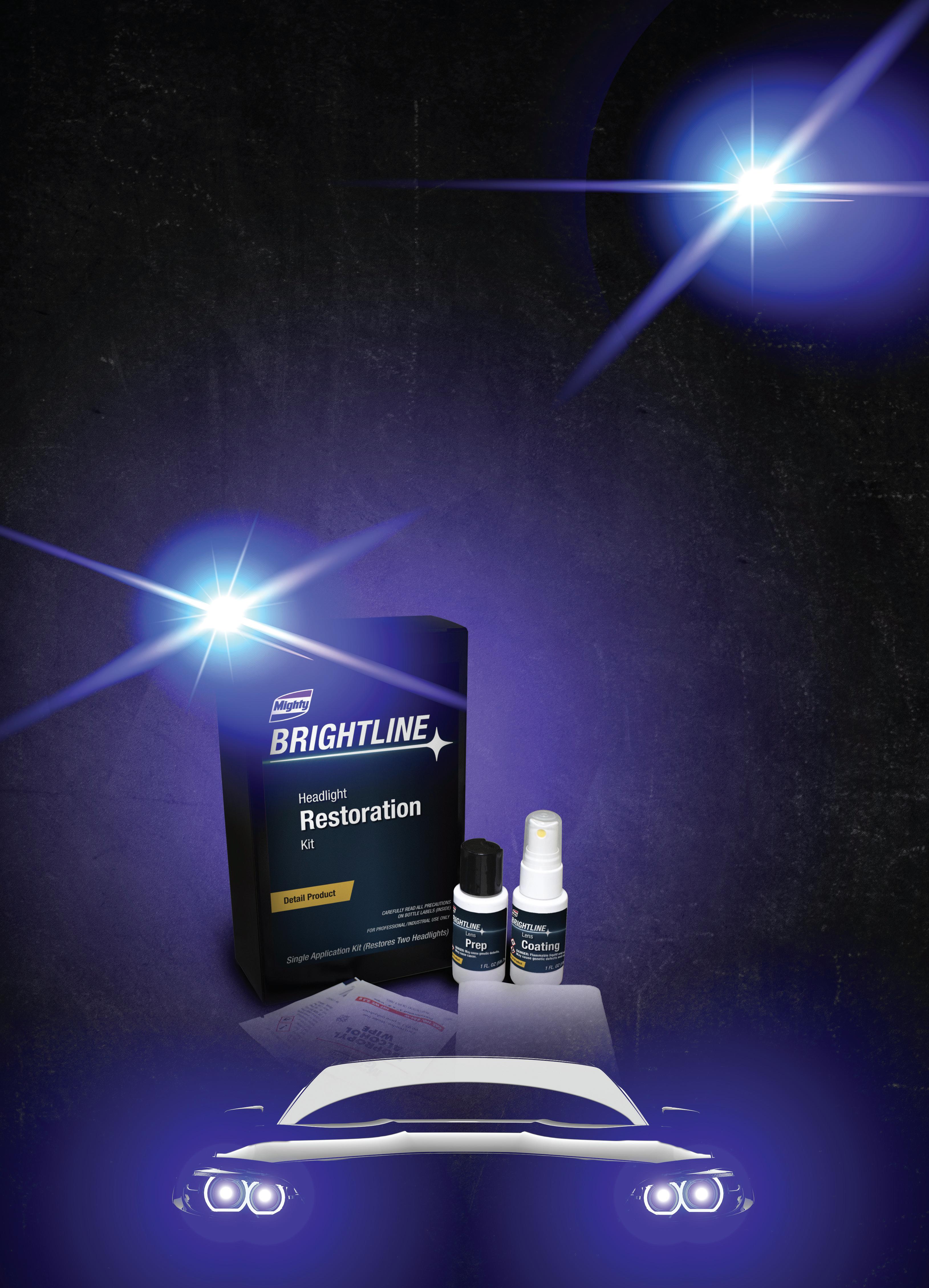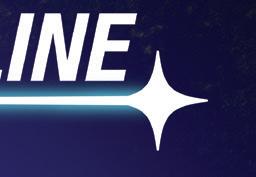





























Depending on whom you listen to, you might think effective filtration is all about maximum filter efficiency. That just isn’t the case. With 85 years of experience, WIX® understands the best filters optimize engine protection and performance.
To strike the right balance, WIX considers all key performance benchmarks—not only contaminant removal. When you choose WIX filters, you’re choosing the optimal levels of efficiency, capacity and pressure drop for long-term, reliable filtration and maximum engine protection.
















































































































































































































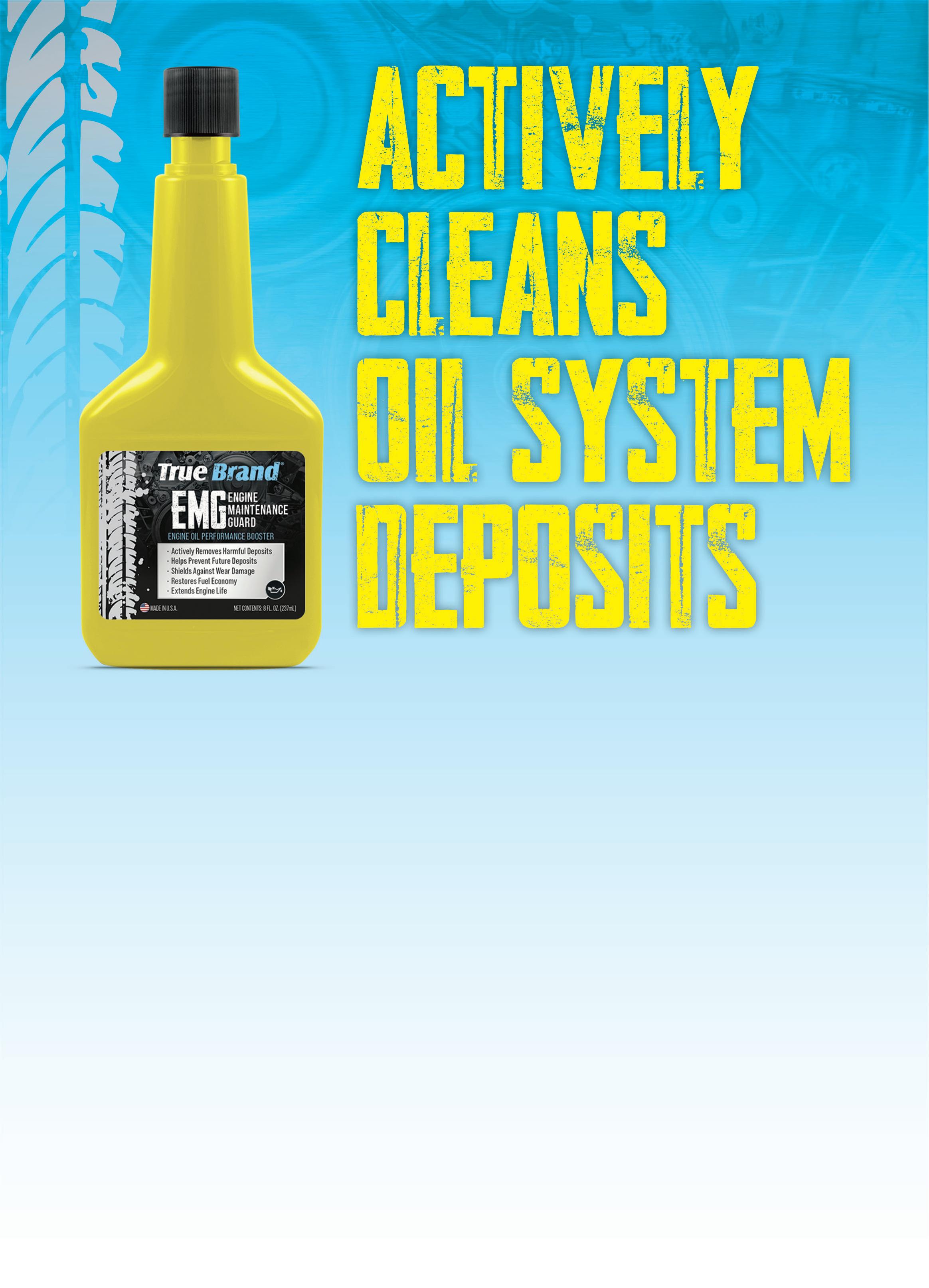


As the professional, give your customers more than just an oil change. Offer the True Brand® EMG Advantage!
True Brand EMG is added with the new oil! This is a high-quality cleaning that is quick and very effective.
EMG is designed to work with your new engine oil, by cleaning harmful oil system deposits and preventing future deposits! It is also formulated to protect against wear, while helping enhance fuel economy — all without causing LSPI.
Key Benefits for Your Business:
Quick add on professional service.
Proven Results: Deliver measurable performance improvements that keep your customers coming back.
Superior Cleaning: Actively removes oil system deposits and prevents future buildup.
Advanced Protection: Stronger anti-wear and oxidation resistance for long-lasting performance.
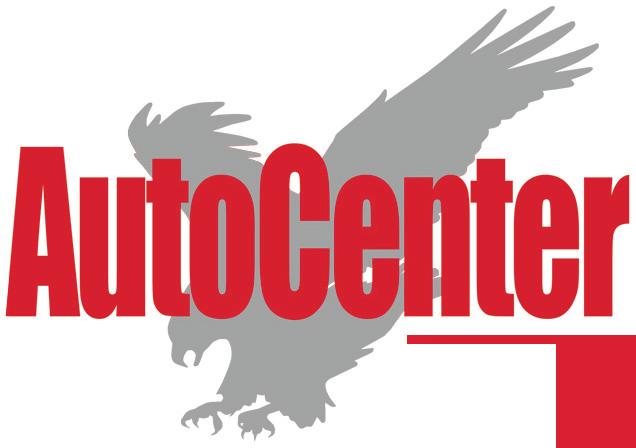

















EDITORIAL DIRECTOR Chris Jones
EDITOR Tom Valentino
ASSISTANT EDITOR Kacey Frederick
SPECIAL PROJECTS EDITOR Emily Kline
CONTRIBUTING WRITERS
Adam Tatum, Scott Hempy, Carol Badaracco Padgett, Peter Suciu, Enid Burns
Adam Tatum, DIRECTOR OF OPERATIONS, VIRGINIA GROUP
Joanna Johnson, PRESIDENT, JOHNSON POLICY ASSOCIATES
Scott Hempy, CEO, OILSTOP DRIVE-THRU OIL CHANGE AND HAPPY’S DRIVE-THRU CAR WASH
Aleisha Hendricks, OWNER/OPERATOR, GREASE MONKEY QUICK LUBE AND MONKEY SHINE CAR WASH
Shawn Gilfillan, OWNER, AUTOMOTIVE MAGIC AND MAGIC LUBE & RUBBER
PUBLISHER Greg Smith gsmith@endeavorb2b.com
ASSOCIATE PUBLISHER Andrew Johnson ajohnson@endeavorb2b.com
ASSOCIATE SALES DIRECTOR Mattie Gorman-Greuel mgorman@endeavorb2b.com
DIRECTOR OF BUSINESS DEVELOPMENT Cortni Jones cjones@endeavorb2b.com
ACCOUNT EXECUTIVES
Diane Braden dbraden@endeavorb2b.com
Marianne Dyal mdyal@endeavorb2b.com
Chad Hjellming chjellming@endeavorb2b.com
Lisa Mend lmend@endeavorb2b.com
Annette Planey aplaney@endeavorb2b.com
Kyle Shaw kshaw@endeavorb2b.com
Sean Thornton sthornton@endeavorb2b.com
ART DIRECTOR Erin Brown
PRODUCTION MANAGER Mariah Straub
AD SERVICES MANAGER Jen George
CEO Chris Ferrell
COO Patrick Rains
CRO Paul Andrews
CHIEF DIGITAL
Jacquie Niemiec
CHIEF ADMINISTRATIVE AND LEGAL OFFICER Tracy Kane
CMO Amanda
EVP ENDEAVOR BUSINESS INTELLIGENCE Paul Mattioli
EVP
VICE
Kylie Hirko
GROUP Chris Messer

Talking Shop. Patrick Wilder (right), owner of Manteno Quick Lube in Manteno, Illinois, talks with an employee.
6 ONLINE
Are you listening to the NOLN Podcast?
9 BY THE NUMBERS
What a save!
10 INDUSTRY INSIGHT
Maine’s right to repair: The work being done to implement it
12 AROUND THE INDUSTRY
Valvoline Instant Oil Change, Jiffy Lube, Take 5, Strickland Brothers recognized in Franchise 500
14 SHOP LOOK
Auto Ace Express Lube & Service Center of Superior, Wisconsin
35 PIT STOP
EV maintenance: An opportunity to get in on ground floor
38 CUSTOMER SERVICE
Turn customer questions into learning moments
40 CASE STUDY
Smart planning can help operators identify opportunities for
and position their shops for ongoing success
After years of helping service chains improve their stores, Will Helton has decided to do it for himself, taking over a well-known quick lube in Arkansas alongside his wife, Bernadette Helton
BY KACEY FREDERICK
Build your shop with equipment essentials
16 MAINTAINING THE MISSION
Create a culture of hospitality BY SCOTT HEMPY
42 FROM THE SHOP
7 Habits of an effective lube manager BY ADAM TATUM

The NOLN Podcast is the premier quick lube industry podcast, helping shop owners and operators improve their businesses with real-world solutions to common problems, delivered by leading industry experts and elite shop leaders. Catch up on some of our recent episodes:
How do you know when it’s time to rethink the marketing strategy for your quick lube shop? Gregg Rainville, SVP of Steer CRM, shares best practices for evaluating your marketing plan, explains how a good CRM can effectively integrate multiple marketing tactics, and provides some questions that shop owners should be asking when choosing a CRM vendor.
How can shop owners level up their leadership skills? Mike Jones of Discovery Leadership Training discusses the hallmarks of effective leadership, as well how comfort zones hold employees back from reaching their potential, the differences between management and leadership, and the relationship between discipline and growth.
SUBSCRIBE TO THE NOLN PODCAST ON YOUR FAVORITE LISTENING APP:
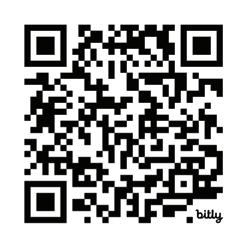



THE NOLN PODCAST
Head online to check out NOLN’s library of podcast interviews. Hear from quick lube leaders about new strategies, service stories, and innovative operations that push the industry forward.
Listen to all the episodes and subscribe at: noln.net/podcasts.

Have you subscribed to the newsletter? NOLN will send the latest industry news, strategies and profiles straight to your inbox.
Sign up at noln.net/subscribe






No. 1 premium fuel system cleaner among automotive professionals
Deposits on injector tip BEFORE




Cleaned injector tip AFTER
BG Platinum ® 44K ® Fuel System Cleaner cleans the entire fuel system, including fuel injectors, fuel filters, and combustion chambers.
Learn why Platinum ® 44K ® leads the way.
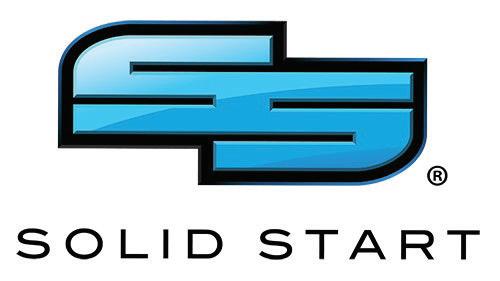
BY AMBER KOSSAK
I’ve been thinking about the impact we have on the little things and how powerful they can be. Little things like a smile, treating people with respect, having understanding, kindness, listening and other facets of good service are not little at all when you add them up. The more you think about it, the more you realize that there are no little things. They all add up to the one big thing: your ongoing success in life, as a person, and in business.
By way of contrast, little things can be your undoing. The smallest bone in your body, located in the middle ear, is shaped like a tiny stirrup and works like a miniature tuning fork. It’s called the stapes. If this little bone gets damaged, you can lose your hearing.
An oil drain plug could be considered a little thing, but if you forget to tighten it, if you do not pay attention to the little things that add up, you may be paying for a new car for some unhappy customer.
Creating a comfortable and positive experience for customers is crucial for building loyalty and encouraging repeat business. Much of this is accomplished by seemingly simple things that add up to make a big difference.
Here are just a few of the many simple things that retail and service businesses can do to make customers more comfortable and keep them coming back:
• Friendly Greetings
• Clean and Inviting Atmosphere
• Comfortable Seating
• Free Wi-Fi
• Clear Signage
• Efficient Checkout Processes
• Personalized Service
• Loyalty Programs
• Flexible Return Policies
• Periodic Sales and Discounts
• Feedback Collection
• Easy-to-Find Contact Information
• Prompt Response to Inquiries
• Appropriate Music Volume
• Surprise Offers
• A Post-Purchase “Thank You” & “We appreciate you”
By consistently implementing these simple measures, your business will enhance the overall customer experience, build positive relationships, and increase the likelihood of repeat business.
The notion of little things also applies to leadership. Stephen Covey had a lot to say about that. Here’s a snippet from his teaching on this topic.
Covey used trim tabs as a metaphor to highlight the idea that seemingly small actions can have a significant and disproportionate impact on larger systems. On a boat, the trim tab is a small, movable surface attached to the rudder that makes it easier for the boat operator to maintain control and adjust the bow angle. It also improves fuel efficiency and stability. Just as a small trim tab on a rudder can steer a massive ship, our individual actions and decisions, though seemingly insignificant, can accumulate and create substantial change.
Covey emphasizes that the power of trim tabs lies in their ability to leverage the momentum of larger systems. By aligning our actions with the direction of the system, we can amplify our impact in an organization or a community and create positive change.
These key takeaways are come from Stephen Covey’s trim tab metaphor:
1. Start Small: Don’t be overwhelmed by the magnitude of the change you want to create. Begin with small, consistent actions that align with your desired outcome.
2. Focus on Your Circle of Influence: Concentrate your efforts on areas within your control, rather than dwelling on things you cannot change.
3. Persistence is Key: Continuous, incremental actions over time will accumulate and lead to significant results.
4. Leverage Systems: Identify and align yourself with systems that support your goals.
5. Lead by Example: Inspire others by demonstrating the power of small, consistent actions.
Remember, even the smallest trim tabs can steer the course of larger systems. Embrace the power of your individual actions and you will contribute positively to the world you control around you.
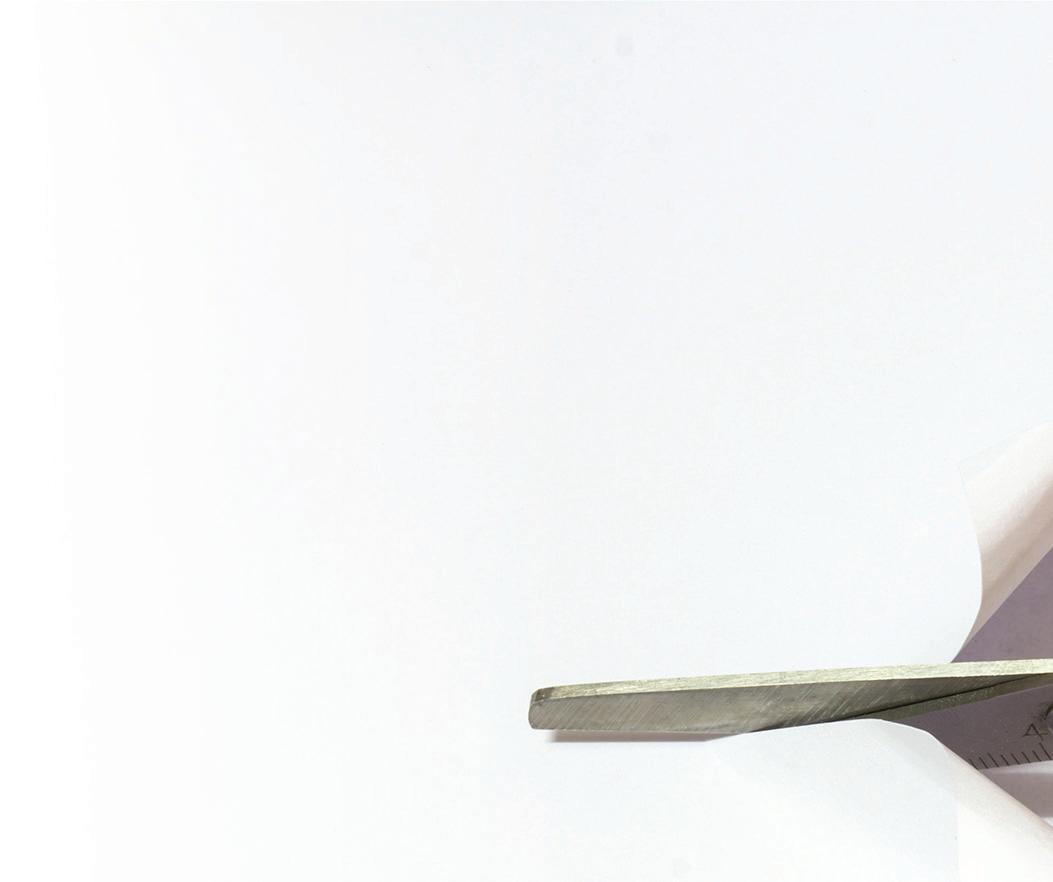
Customers are drawn in by discounts through coupons and other promotional programs
BY TOM VALENTINO
Who doesn’t love a good deal? Coupons and promotions are tried and true tactics for quick lube shop owners looking to drive up sales, whether it’s enticing new customers or retaining long-time patrons.
In the 2024 NOLN Operator Survey, 73% of respondents said their shops offer discount coupons or programs. But what is the sweet spot for discounts that will attract customers without cutting too deeply into profit margins?

The following is a breakdown of types of promotions operators use and the typical discounts they offer:
















VIP Tires & Service CEO addresses concerns of independent shops in a working group for R2R’s implementation



BY KACEY FREDERICK
Repair at a federal level continues, but in the meantime, states like Massachusetts and Maine have fought to make it law on a state level, with the latter passing its own Right to Repair bill in 2023.
The law passed will require the creation of an oversight committee to ensure automakers are providing data to repairers.
But before that can happen, Maine’s bill has laid out phases of implementation, starting with forming a working group to determine how this committee will operate.
The group of about a dozen individuals includes a member of the Alliance for Automotive Innovation, a director of engineering from Tesla, the owner of a large car dealership in Maine, and representatives from the a orney general and secretary of state’s offices.
Tim Winkeler, CEO and president of VIP Tires & Service, serves on the group as a representative of the independent auto repair industry.
“In a nutshell, the group we’re in right now is charged to create an entity, decide where that entity is going to reside, how it’s going to be staffed, how it’s going to be financed, and then what their level of authority and decision-making is going to be,” explains Winkeler.


The next phase will commence in February, when the working group finalizes its guidelines and submits them to Maine lawmakers. Those guidelines will serve as a foundation for how legislators should implement the law moving forward.
First, though, the issues Winkeler outlines must be addressed. It’s critical for the group to have a diverse range of opinions to fully understand these obstacles. Though Winkeler is not involved in lawmaking, his presence has given voice to the concerns of independent shops in Maine.
One major issue Winkeler has highlighted in the group is the need for repair data to be accessible through standard scan tools. However this oversight entity decides to enforce Right to Repair, it will need to ensure that independent shops have access to this data without any unforeseen costs like having to purchase new scan equipment.
“We can’t allow this solution to require...a technician go and buy a separate tool that’s a Chrysler tool, and a GM tool, and a Toyota tool, and a Tesla tool, and for the other 20-orso car manufacturers,” Winkeler says.

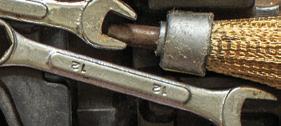




Already embedded in Maine’s Right to Repair law is a penalty for auto manufacturers that don’t abide by the legislation, with a $10,000 fine being incurred for each violation. If a shop is struggling to access repair data, a process will be needed to report these instances. This is where the Maine a orney general’s involvement with the working group comes into play.
While the working group is still ironing out guidelines, it’s possible that a platform could be created for repair shops to submit problems that the attorney general’s office would then review.
Eventually, the oversight committee must figure out how to ensure automakers are providing a remote access platform for obtaining repair data—which will be required by law.
“So if you buy a car that produces data that has to be accessed remotely...in order to repair it and diagnose the problem, then the car owner themselves, through this law, can provide access to that remote data to their independent repairer,” Winkeler says. “And the car manufacturers have to agree to create a remote access system to enable that.”
MAXIMIZE YOUR PROFITS BY OFFERING VALVOLINE RESTORE & PROTECT TO HELP BOOST REVENUE AND CUSTOMER RETENTION.


Accolades continue to roll in for the quick lube industry’s leading brands. The following four operators were among the honorees in Entrepreneur’s 46th annual Franchise 500 rankings, which were released in January:
• Valvoline Instant Oil Change (No. 24)
• Jiffy Lube (84)
• Take 5 Oil Change (101)
• Strickland Brothers 10 Minute Oil Change (349)
Published annually since 1980, the Entrepreneur Franchise 500 ranks companies with at least 10 franchise units that are looking to expand in the United States and Canada. Franchisors were scored on 150 data points across key factors that include: cost and fees, size and growth, support, and brand strength.
Formal approval has been granted for ILSAC GF-7A and GF-7B motor oils used in gasolinepowered engines, the American Petroleum Institute announced in a recent press release.
The oils are the most recent of firmer performance specifications the International Lubricant Specification Advisory Committee is now requiring.
A new generation of gasoline engine oil standards, ILSAC GF-7 is designed to accommodate fuel economy and emissions reduction goals for model 2026 vehicles and beyond. As engine technology advances, the standards aim to meet changing EPA requirements through improved engine protection, fuel efficiency, and
emission performance.
Launching alongside ILSAC GF-7 will be API’s latest engine oil performance standard, API SQ, which contains ultra-low-viscosity grades including SAE 0W-8 and SAE 0W-12. All three of these gasoline engine oil standards will be licensed under API’s Engine Oil Licensing and Certification System as of March 31, 2025.
Additionally, API has noted that API SQ Resource Conserving will meet all ILSAC requirements, while API SQ without Resource Conserving is meant for oils not included in ILSAC OEM recommendations.
Licensed oils meeting the ILSAC GF-7A standard will be permitted to display API’s “Starburst” certification mark, and are able to be used where GF-6A or earlier gasoline engine oil standards are recommended.
Oils meeting the ILSAC GF-7B standard will be able to display API’s “Shield” certification mark, ensuring that only SAE 0W-16 oils are used where recommended.
EXPANDS PARTNERSHIP WITH REVMO AI TO FIELD CALLS
Jiffy Lube franchisee Stonebriar Auto Services LLC is expanding its partnership with Revmo AI to more stores, according to a recent press release.
Beginning in October 2024, Stonebriar began using Revmo’s services to automate the process of answering phone calls and other incoming inquiries.
According to Revmo, the company has answered more than 50,000 inbound phone calls for Stonebriar, and claims it’s led to 23 new customers per month per location, as well as $6,000 in attributed top-line revenue related to customers completing service within 10 days of their call.
A lawsuit surrounding Ford’s EcoBoost engines that was recently revived has now been followed up with a separate class action over another alleged issue with the engines. According to CarBuzz, the suit covers Ford Bronco, Edge, Explorer, F-150, and Lincoln Aviator and Nautilus vehicles produced between May 1-Oct. 31, 2021, equipped with either the 2.7-liter or 3.0-liter EcoBoost engine.
Last year, Ford issued a recall for these vehicles over the issue, and had dealers replace the EcoBoost engines with new assemblies containing intake valves with adequate hardness specifications. The automaker also provided recalled vehicles with an extended warranty of 10 years or 150,000 miles.
The suit argues that Ford’s remedy was insufficient in fully replacing the defective parts.
Atlanta-based marketing firm Dagger has been made the creative agency of record for Take 5 Oil and Take 5 Car Wash, as well as a roster agency for the rest of Driven Brands’ portfolio, per to AdAge.
Other agencies will be joining Driven Brands’ roster, including Tombras and Mythic, the latter of which has previously worked on the Take 5 brand, as well as Maaco and Carstar. Take 5 Oil Change VP of Marketing Mike DeTrana said the company’s recent search for outside agencies was motivated by the desire for a roster of agencies that could accommodate all of Driven Brands’ portfolio.
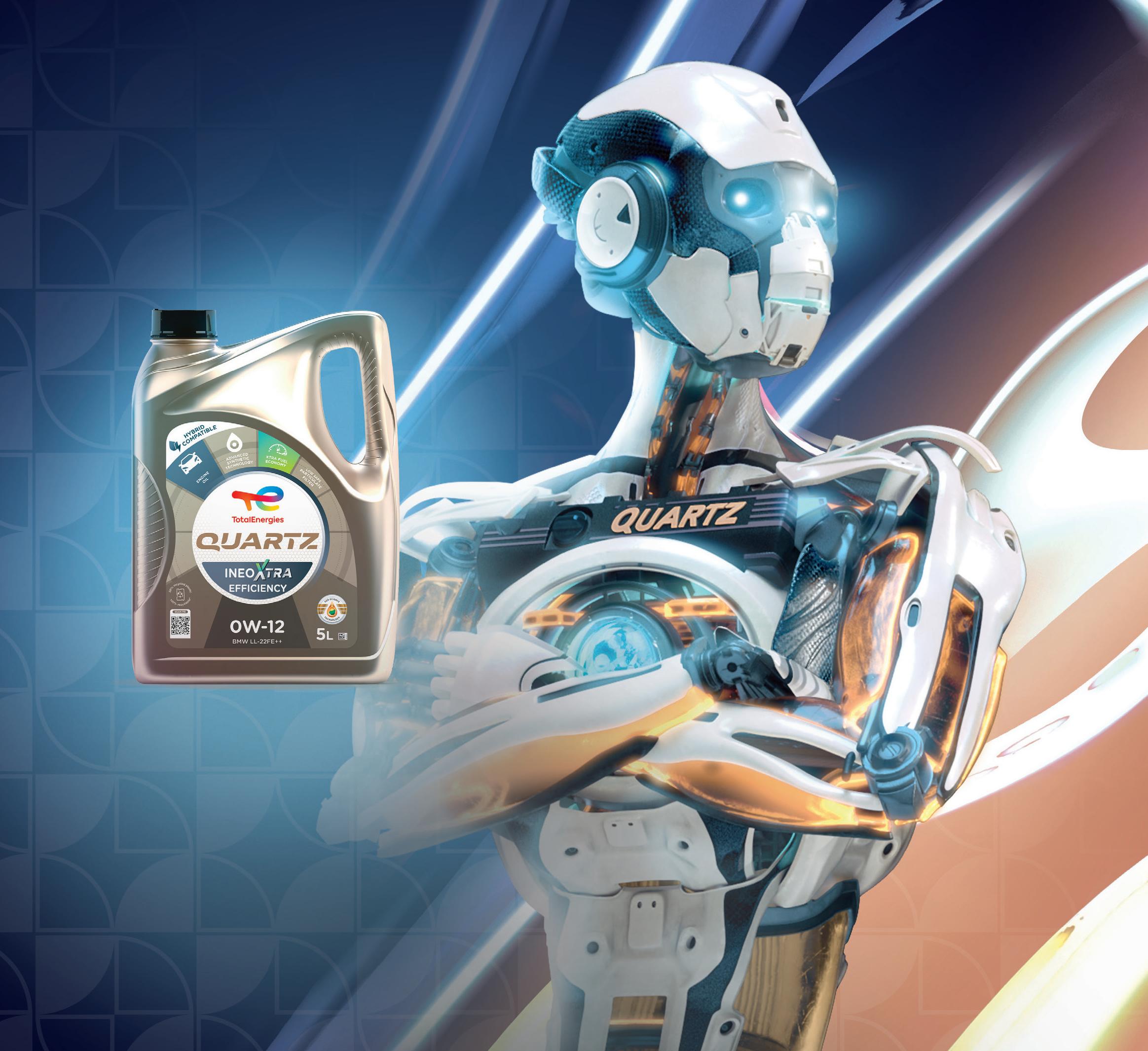




Quartz Ineo Xtra Efficiency 0W-12 is an exlcusive premium engine oil crafted for both thermal and hybrid BMW gasoline engines.


With its unmatched fuel economy, advanced protection properties and unbeatable engine cleanliness performances, Quartz Ineo Xtra Efficiency 0W-12 exceeds the latest and stringent BMW LL-22FE++ specification.

LOCATION:
SUPERIOR, WISCONSIN
OWNERS:
ALAN AND GINA AMATUZIO
STAFF SIZE: 13
BAY COUNT:
2 QUICK LUBE BAYS, 2 TIRE BAYS, AND A 3-LIFT REPAIR CENTER
AVERAGE MONTHLY CAR COUNT: 1,000
BY KACEY FREDERICK
PHOTOS
BY
ALEX COMSTOCK
BASED IN DULUTH, MINNESOTA, Auto Ace Express Lube was first purchased by Alan and Gina Amatuzio in 2001. Alan’s mother was the previous owner, but at the time she was living in Florida and couldn’t be near their first location in Duluth, Minnesota, on Kenwood Avenue.
Pete Popoe had been working there already under the shop’s previous owner, but it wouldn’t be until a year later that he would take his current role of store manager, in which he would be instrumental in helping the brand grow.
The business’ newest location in Superior, Wisconsin, was originally a service center called Pete’s Tower Service & Quick Lube. It had been in operation since the 1990s. During


its run, Pete’s Tower and Auto Ace both proved themselves to be innovative businesses.
“They were the first quick lube, I believe, here in Superior; and our Kenwood location was the first quick lube in Duluth that had the pit system. They had the in-floor lift,” recalls Popoe.
In 2022, Auto Ace began considering expanding to a second location shortly before the owners of Pete’s Tower decided on retirement. It was Popoe who first caught wind of this through one of his oil distributors, leading to a negotiation and eventual sale of the shop in February 2023.
THE ‘WOW’ FACTOR
Auto Ace revamped the facility’s look from its dated white brick exterior with a red stripe. It now features a red metal siding and black accent colors to match the brand’s image.
Inside is a small waiting area, with chairs by the front counter, a coffee station, and a TV. Customers can see inside the bays to watch their vehicle being worked on.
Though it is a quick lube brand, customers often exit their vehicles


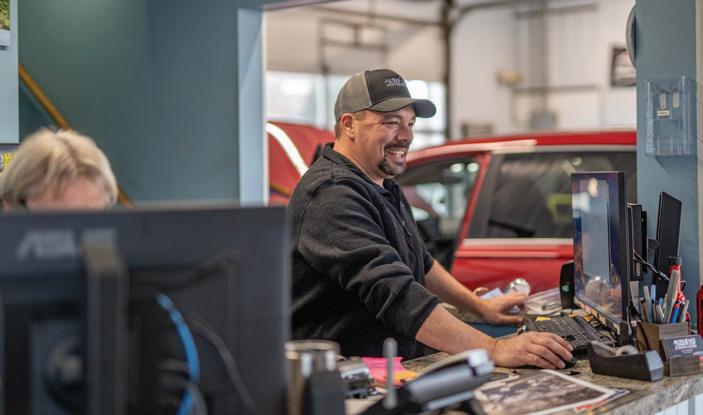
as Auto Ace offers vacuuming services. It’s something Popoe says puts them on another level from other oil change shops around.
“It’s kind of one of those things that’s a wow factor,” describes Popoe. “You don’t see the new oil, you don’t see different things; but you can see that, ‘Oh, my floors are clean!’”
Inside the shop, Auto Ace keeps things nice and tidy. All


the technicians’ tools, such as oil guns and washing fluid, come up from the floor. It’s the opposite of Auto Ace’s setup at its Duluth store, where all the tools come down from the ceiling. The area where the tools are stored divides both bays.
While Auto Ace’s Duluth shop only performs oil changes, the new Superior store now offers repairs, with a building next door currently being renovated to accommodate three lifts for mechanical repair. The project will free up the two existing bays to focus on lighter maintenance work.
Popoe’s relationships with the industry, as well as his dedication to visiting the shop before taking over to become familiar with the existing team and customers, has taken the new Superior shop straight to success along with its Duluth store.
“It was a pretty smooth transition,” shares Popoe. “I had almost a year (before taking over) and talked to a lot of the customers that they had. And a lot of the customers stayed here and were pretty happy with the transition.”

Customers notice when team members go the extra mile to improve their guest experience


Scott Hempy leads the team at Oilstop Drive-Thru Oil Change and Happy’s Drive-Thru Car Wash. Oilstop and Happy’s are rapidly growing their footprint of oil change and express car wash locations across the West Coast, combining convenience with an outstanding emphasis on guest experience. Prior to Oilstop & Happy’s, Scott was the founder and CEO at Filld, a SaaS-based software solution for last-mile oil and gas delivery companies. He was recognized as a member of the Forbes 30 Under 30 class of 2016 for starting Filld.
.COM
IT IS necessary to teach your team how to change oil. It is also necessary to teach your team to complete any inspections you might include in your service, replace a cabin or engine air filter, and maybe even to collect payment from the guest at the end of the service. But what is the most important thing you teach your team?
I recently heard a story from someone going through cancer treatment. At each visit for chemotherapy, before ge ing the patient checked in, hooking up the machine, or doing anything else, the nurse would bring over a warm blanket to the patient. A er several visits, the patient noticed this trend and realized it wasn’t just one nurse who was doing this. It was every nurse. Then it dawned on her. This was a process that was trained. The nurses were trained that the most important thing they do each day is hand out a warm blanket. It was providing comfort to a person having some hard days. And that prioritization set the tone for the rest of the process. The nurse focused first on hospitality, then went about the task of providing the treatment.
Creating a culture of hospitality is about training your team on the most important thing they do each day. Hint: It is not how they change the guest’s oil, inspect their vehicle, or collect payment. Teach and train your team that the most important thing they do each day is interact with the guests in your bays. Once your team recognizes this, overnight you will create a culture of hospitality in your service center.
Hospitality is the “friendly and generous reception and entertainment of guests, visitors, or strangers.” Hospitality is often used to describe the restaurant or hotel industries. Hospitality is not a word often associated with
an oil change operation, yet we all have encountered hospitality when we enter a friend’s home, arrive at a party, or even walk into a business. The team greets you smiling, likely by name and with a hug. Your friend might even have a cold beverage to offer you as you walk in the door. The doorman opens the door before you even think about it. Hospitality isn’t limited to restaurants or hotels. In fact, hospitality is what brings guests back to any business.
You get what you talk about. If the only things you talk about with your team are metrics, staffing, or car count, then that is what your team knows to focus on. At Oilstop, we teach hospitality to every team member in our organization. We do this directly through leadership classes and training courses. But we drive those lessons home by making it something we always talk about. Our director of mission, Ben, keeps the pulse on whether our mission statement, hospitality, or “why” we are doing what we do is being talked about enough with our team. We aren’t perfect. Sometimes we get in a rut of only talking about service center metrics or operations. But then Ben or someone else on our team calls it out. So, we recalibrate and get back to talking about “why” we do what we do: to serve our guests and provide excellent hospitality. And the great side effect of this? Those guests who experience that hospitality will come back.
Ben Franklin once said, “The handshake of the host affects the taste of the roast.” And the same is true with an oil change. The quality of the oil change to your guest is most felt by how your team greets and acknowledges them. Prioritizing hospitality in your bays will help your service “taste” better to your guests—and bring them back!
PHOTO: SCOTT HEMPY
How to align your business practices with today’s environmentally conscious society
BY SPIRO MOROGIANNIS, BG TRAINING MANAGER AND BGU INSTRUCTOR
Quick lanes are about speed, turnaround time, and car count. How else can you drive profits in your business? Value-added services can expand your offerings with an instant ROI.
Sticking to an efficiency model is important; however, maximizing your potential through fast services added to oil change packages provides a boost to sales and profitability without disrupting daily workflow.
Pour-in products and services can make an immediate impact. WIth virtually no time added to a sales transaction, they can be added during an oil change and produce additional revenue for your shop. Treatments for oil, fuel, coolant, and transmission are quick ways to offer additional products to customers.
FUEL ADDITIVES
Many OEMs now recommend a fuel treatment at oil change intervals. These products restore a vehicle’s fuel efficiency, reduce carbon buildup, and improve overall engine performance by keeping injectors and piston tops clean. Modern GDI engines benefit the most from these types of products, and if you use a quality, proven product—your customers notice.
OIL TREATMENTS AND CONDITIONERS
With prolonged OEM oil change intervals, oil supplements help prevent premature oil from breakdown. These long service intervals can lead to the buildup of carbon, varnish, and sludge. Quality oil additives protect against premature oxidation, combat engine acids, and prolong oil life— extending engine longevity.
ENGINE CLEANERS
Engine cleaners help address neglect, especially in older vehicles. Excessive oil consumption often results from carbon buildup in the oil control rings—a common issue in high-mileage vehicles, particularly with low-tension piston rings. Engine cleaners remove these deposits, improving performance and reducing oil consumption.
TRANSMISSION FLUID ADDITIVES
Transmission fluid additives rejuvenate old fluid that no longer protects the transmission. Like oil additives, they replenish key additives and combat acids. While not a substitute for a full service, quality transmission additives offer a safe, equipment-free solution.
POWER STEERING ADDITIVES
While fewer vehicles have traditional power steering, over 200 million still use these systems. As high-pressure, non-filtered systems, fluid condition is crucial for longevity. A quality power steering additive restores fluid conditioners, enhancing performance, smoothness, and safety.
COOLANT ADDITIVES
Coolant additives benefit customers who have not changed their
coolant. Over time, the SCA additive packs in coolant degrade and lead to increased acidity. Great additives restore this fluid, reducing corrosion and preventing issues with the radiator and water pump. Check acid levels quickly with coolant test strips.
You can quickly pick up labor dollars with these three quickand-easy services:
• Tire Rotations: If you’re not set up for express rotations, a visual inspection relayed to the customer builds trust through transparency.
• Wiper Blade Replacements: Pair it with a water repellent service for a “wiper service package” upsell.
• Air Filter Replacements: Show the customer their car’s dirty filter and the sale nearly always makes itself. Upsell it with a fuel product or an MAF/MAP sensor cleaning package.
Adding pour-in products increases the average transaction value with minimal or no labor cost. Partnering with a professional fluid company can also include product and service drive training—helping your store sell more.
QUICK AND EASY IMPLEMENTATION
These products don’t require complex training or additional equipment—ideal for quick lube shops that want to enhance their offerings without significant investment. Outside of a small initial product investment, this is a quick, high-revenue opportunity.
CUSTOMER RETENTION
Providing additional services increases customer loyalty, encouraging future maintenance returns. Remember: If you don’t offer something to them, someone else will! Many of these products or services can be paired with third-party roadside assistance, boosting customer retention.
UPSELLING POTENTIAL
Pour-in solutions are easy to sell as part of a “complete service,” giving employees an easy script to follow and an opportunity for higher revenue per service. Training is often included with many fluid and chemical providers to improve your staff’s confidence in upselling.
Pour-in products and services are the fastest way to improve both your quick lane revenue and customer retention. Look for simple ways to improve business by offering your customers options. If you do a thorough, consistent job and offer 100% of the time, you’ll sell more. Transparency, consistency, and offerings are the winning formula to growing your quick lane profitability.

Smart planning can help operators identify opportunities for improvement and position their shops for ongoing success
By Carol Badaracco Padgett
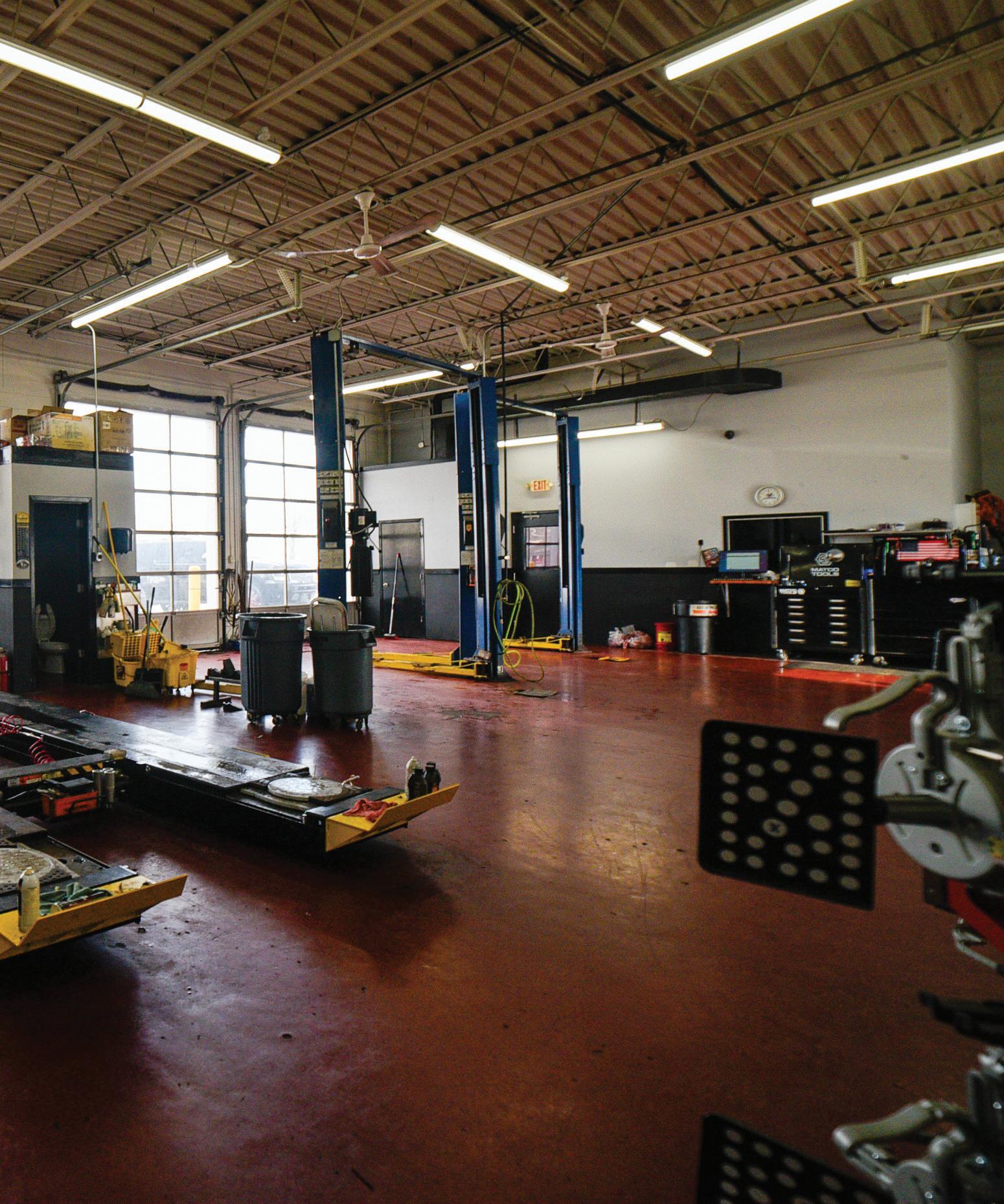
It’s no secret that New Year’s resolutions can be notoriously short-lived. This applies to professional life, too, where it takes smart planning and ongoing monitoring to keep your business in top form for another strong trip around the sun.
This is how Brian Morrison, a quick lube owner and operator in the Carolinas, starts the process: “We have an end-of-year wrap-up with each store’s manager, looking back at the previous year and seeing if we hit our targets. Where did we excel and where did we fall short? Are we up and down in cars or sales, and what do we want to focus on in the new year?”
The following are simple moves that can help owners answer questions like these and set up their lube shops for ongoing success.
Drawing on his experience owning six successful SpeeDee Oil Changes and 11 Grease Monkeys, Morrison has found that what he learns in those wrap-up meetings can be used to plan budgets and programs for the next year.
Two other successful lube shop owners around the country—Luke Self, owner of Ripley Fast Lube in Ripley, Tennessee, and Patrick Wilder, owner of a collection of shops under the All Automotive banner in Illinois—agree that getting intelligence from individual store managers is critical for ongoing success.
“I set benchmarks for my team, and (that involves) daily, weekly, and monthly discovery on my end,” Self says. “I discuss it with my managers, and we also look at everyday goals.”
Aspects of the business that Self and his team monitor range from the everyday costs of doing business, such as whether the utilities are running higher, the cost of wages and insurance, and what the numbers look like compared to last year. Upon review, they determine which parts of the business may need adjustment.
Wilder says he pow-wows with his managers to gain market intelligence. “We look at what the market can bear in terms of pricing, and (so) we try to secret shop our competitors a little.”
No matter the approach, if you want to be successful each new year, Morrison suggests, “(Don’t) go into meetings just pushing out information. Instead, ask (managers) questions and then figure it out together.”
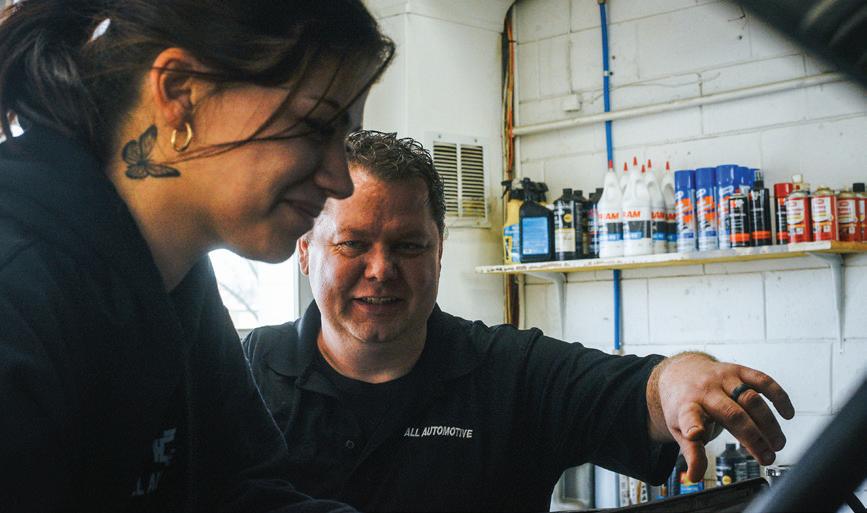
People have a lot of choices when they get their car’s oil changed. As Self puts it, “There’s a pile of us around. If your customer service is the best, though, price will only matter a little. Build loyalty and they won’t go anywhere else, regardless of whether you’re $2 more than the shop down the street.”
Quick lube owners can strengthen their relationships with customers by empowering employees to make situations right, says Morrison. “I use the analogy of when you go into McDonald’s. If the food takes too long, they can fix the problem with the customer right there and give them some fries,” he says.
Similarly, Morrison’s store managers are empowered to resolve customer concerns up to $300, while district managers are given a $500 cap and regional managers up to $1,000 –without making a customer wait for the manager to get permission. This is why: “When we get it wrong and a customer is looking for a solution, the last thing they want to hear is, ‘That’s above my pay scale, I’ll have to run it up the flagpole and someone will call you back.’ Customers expect you to take responsibility and fix it now.”
Morrison adds, “We give our (managers) these two mottos: ‘Always do the right thing,’ and ‘Don’t fight, make it right.’”
For Wilder, great customer service involves anticipating his customers’ needs.
“Chairs, fixtures, anything that’s a customer benefit, spend the money. You’ll get it back,” he says. “Too many shops trip over pennies, and they don’t want to spend $100 on a new chair or [even] care if the toilet is leaking. But not spending the money is costing you money. Because if customers come in and see a leaking toilet, they think, ‘What are they doing to my car?’”
At one location, Wilder recently purchased a $30 cell phone charger for customer use.
“Spending a little makes a good bit of sense –especially when it means a customer won’t have to leave (my business) to get what they need,” he notes.
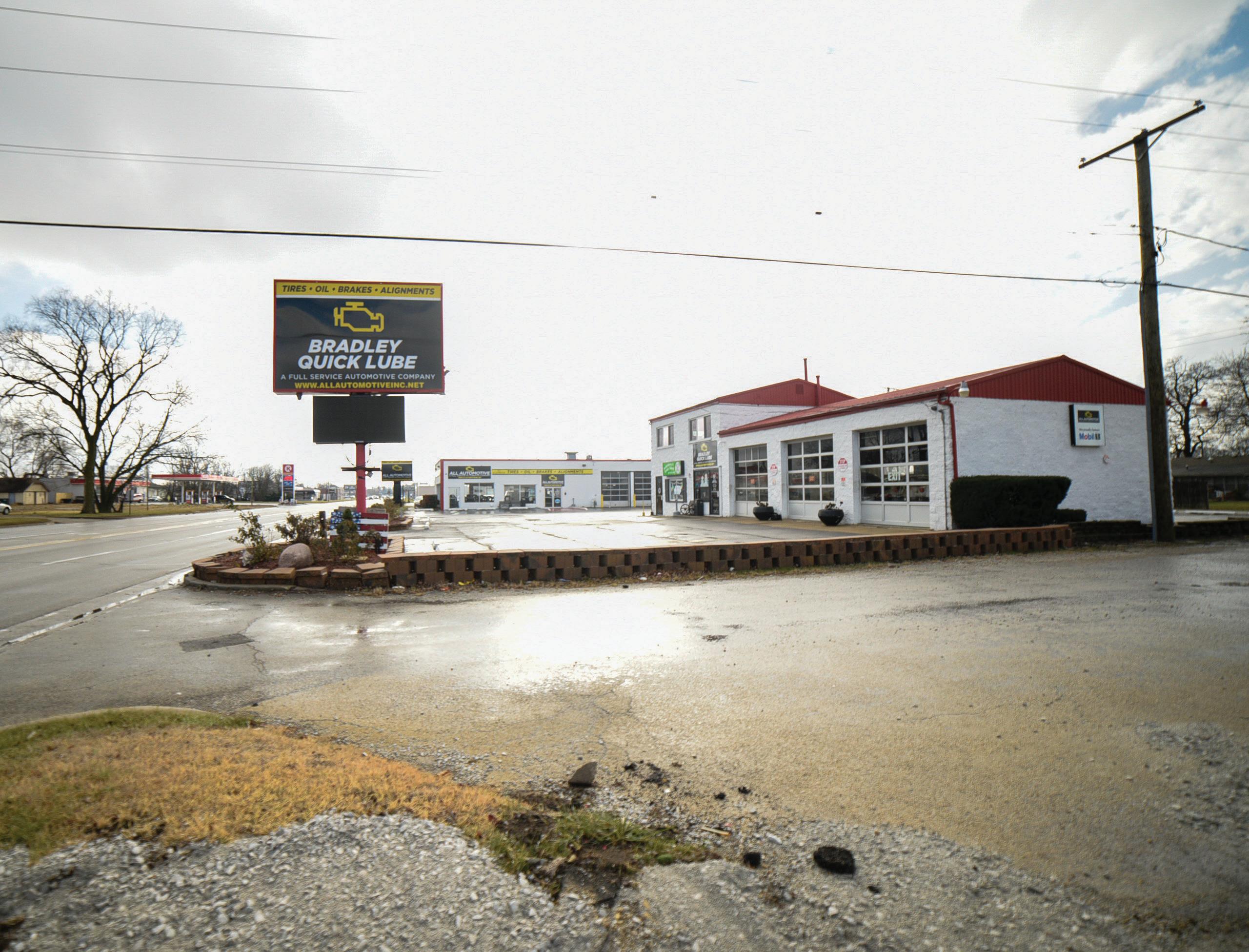
For Self’s business in Tennessee, adequate compensation is the best way to get his team onboard to produce another successful year of business, he says.
“To get good people and keep them, pizza parties and a pat on the back won’t cut it,” he says. “Give them good money (at his shop, that means above average industry pay), and they’ll stick around. If you take care of your people, they’ll take care of you.”
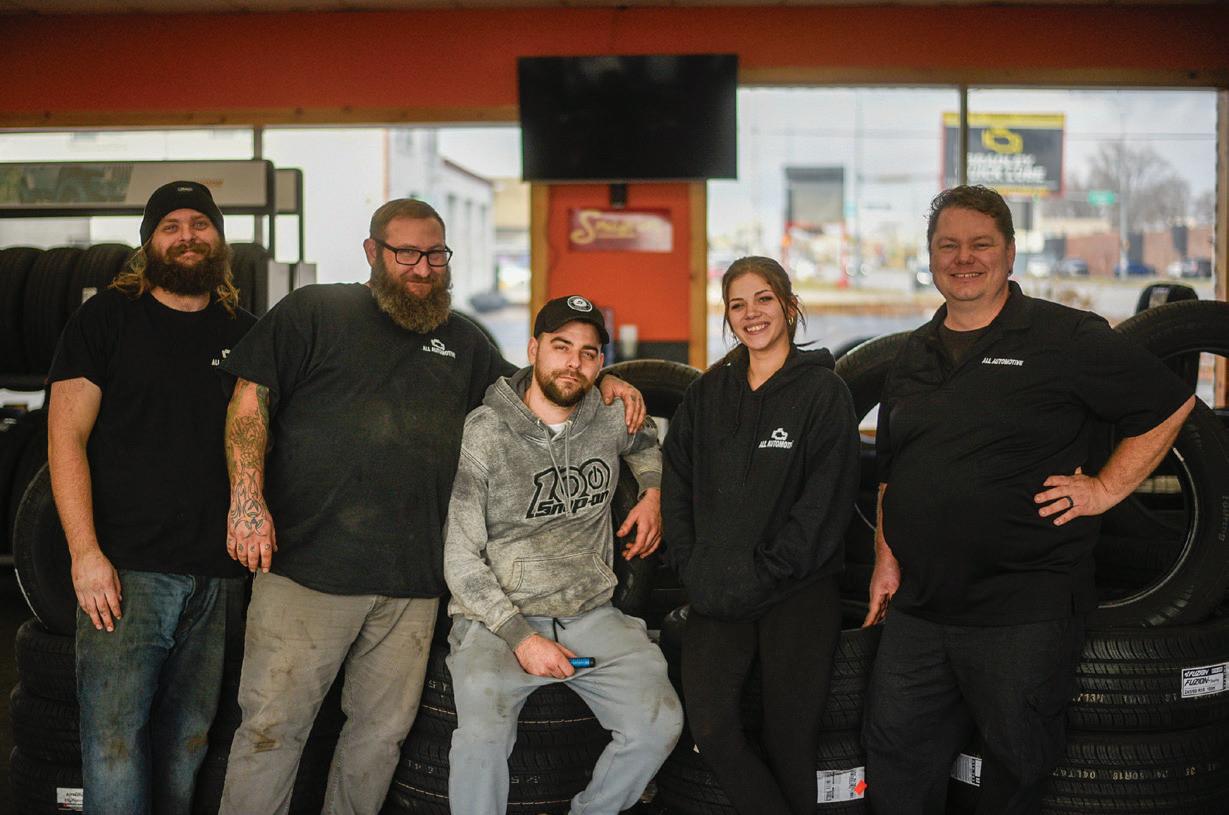
Self learned this lesson during his early days working for others.
“In my current situation, for the past two years, I haven’t had to hire another new person. I even got a letter from the state of Tennessee reminding me that I hadn’t been reporting new hires.”
He continues, “I believe it’s because I pay my crew very well. I have been in the industry for 22 years, starting out as a pit tech, and worked my way up to
Patrick Wilder (right), owner of All Automotive, speaks with his managers to gain market intelligence.
district manager before buying my own shop, and I saw firsthand how other companies treated employees. I’m doing everything I can to be the opposite of most.”
Self adds this caveat, though: “My employees have to work for it. They have goals to meet if they want to achieve their bonus each month.”
Whether your lube shop looks consistently clean and fresh—outside and in—has an effect on your bottom line. So, it’s smart to consider year-end upgrades and improvements. Sometimes, that can look like a full-on exterior or interior design update, but sometimes it’s just a serious scrub.
“Internally we clean our own shops, but once every three to four months, we pay somebody to really clean them. And it looks way better than what we can do,” Wilder notes.
Morrison says that the months of December, January, and February are an excellent time for his businesses to receive major TLC. “(The weather here) starts to slow us down throughout the whole system, so we use this time to do what we call spring cleaning – maintenance and painting projects.”
Wilder adds that sometimes a pause is in order while a store is refreshed and put back into service. “I’ve seen companies close a store for a month or two,” he says. Wilder notes that the death of one of his shop managers caused him to close a store, remodel, and reopen after a pause. While the location was closed, Wilder and his team spent the time repainting the exterior and interior and updating furniture, fixtures, and installing new shop equipment where needed.

Any given lube shop will not reinvent itself overnight, according to Morrison. And it will have a history that shop owners can learn from if they pay close attention.
“See what (a) store has done in the past three years,” he suggests as a good end-of-year activity. At SpeeDee Oil Change locations, comps like these allow him to examine loss of top-line revenue, areas for cost control, and potential staffing issues, so he and his team can consider whether different investments in people or equipment will help improve a given shop’s performance.
“Whether the store does brakes, tires, tune ups, we let the store organically figure out what it is, who it is, and what its community needs. And then we sell the customer what they need,” Morrison says. “We’re not a one-trick pony.”

Keep it Clean
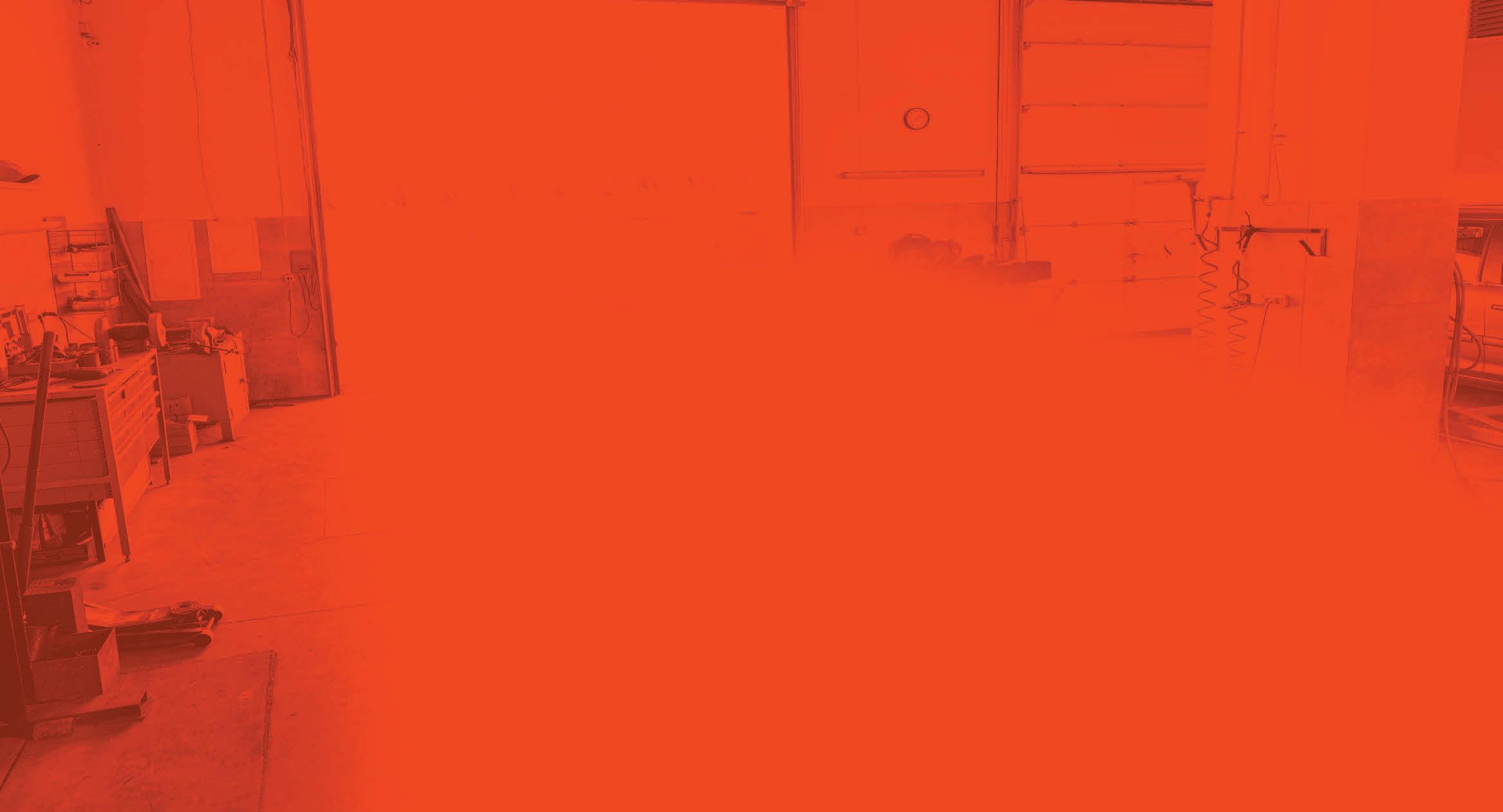




















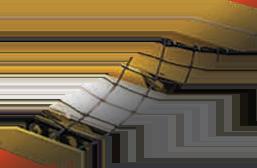


































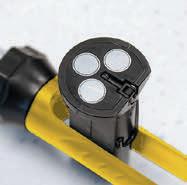










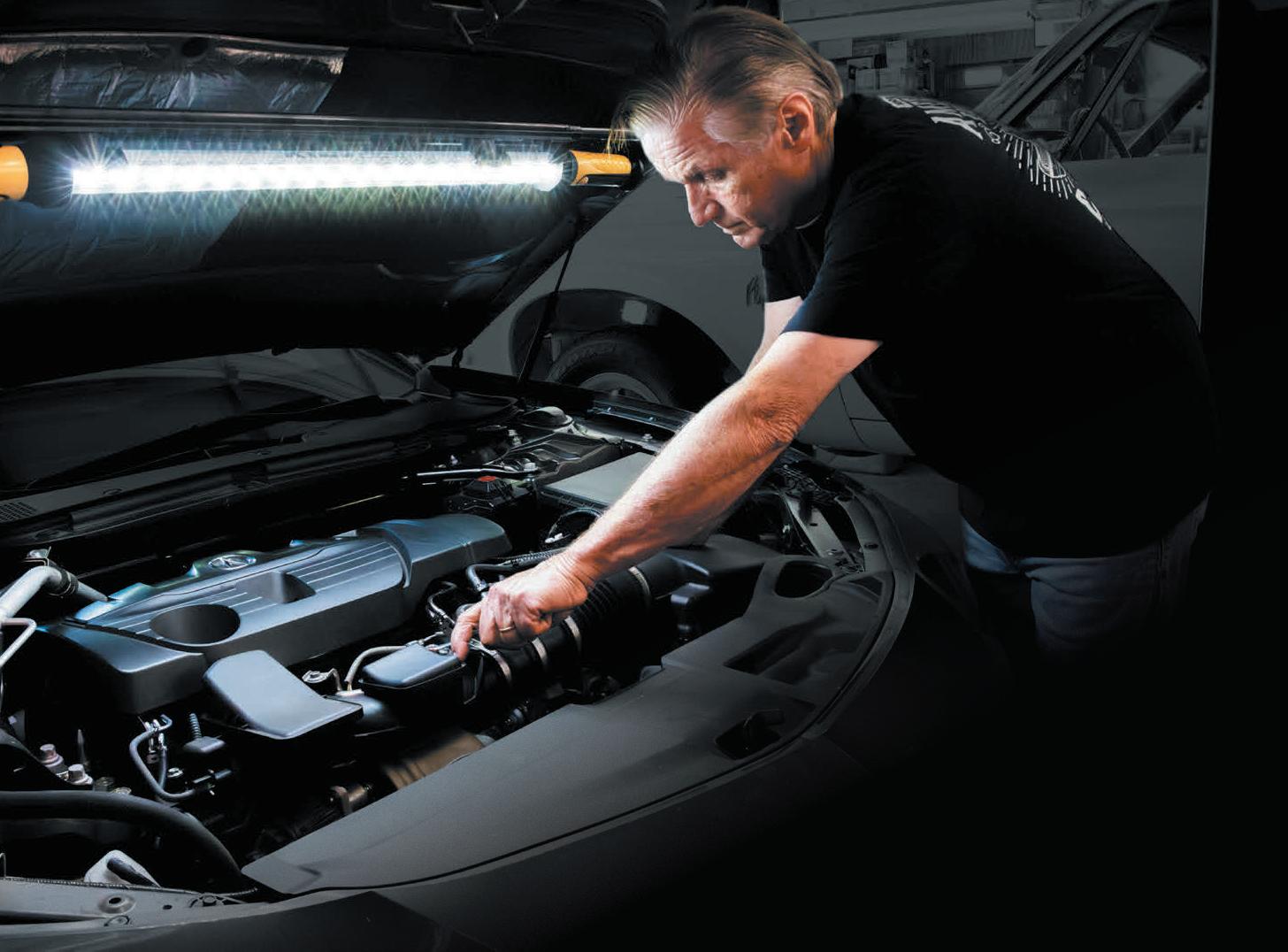





After years of helping service chains improve their stores, Will Helton has decided to do it for himself, taking over a well-known quick lube in Arkansas alongside his wife, Bernadette

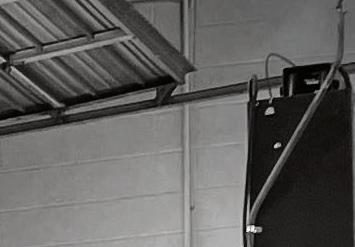
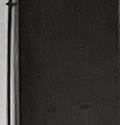











After spending years helping other shops see success, Will Helton decided he was ready to do it for himself. After traveling all over Texas throughout his career, he left his corporate position with the Midas brand to return to his home of Arkansas and take over a well-known quick lube brand, as well as a repair shop.
He and his wife, Bernadette Helton, now operate Grease Pig Lube & Tune in Fayetteville, Arkansas. They’ve elevated the brand to new levels and share with NOLN how they took something great and have made it even better.
Will and Bernadette first met when they were 17 years old. Bernadette was the first to enter the field, gaining a job as a sales associate at an independent shop in Conway, Arkansas, when she entered college. It wasn’t until after Will graduated from the University of Arkansas in 2002 that he would enter a summer internship with Firestone.
“When he began his internship at Firestone, I was like, ‘Oh my goodness, I’m already working in this industry, and now you’re gonna be at Firestone,’” remembers Bernadette.

“It was just a college job, but ended up very useful for what we’re doing now.”
Will’s internship led to a 17-year career, starting as a retail sales associate and eventually overseeing all of Firestone’s stores in Texas and Louisiana. During this time, Will and Bernadette moved several times throughout Texas, all while starting a family.
After Will concluded his time at Firestone, he gained a position with TBC Corp. to manage the Midas brand. At this point, Will had seen many people leave their roles to launch their own shops and brands. Achieving promotion after promotion, Will says it didn’t feel like the right time for him—but, eventually, he knew he wanted to do something of his own one day.
Will would meet with groups of dealers saying they were struggling to get by, listening to them debate over trivial things instead of implementing real, substantive changes to how they operate.
“We would spend half of the meeting debating on what was the price of oil changes for our marketing campaign. Was it $19.99, or $21.99, or $24.99,” remembers Will. “And I thought that was so dumb.”
Instead, Will taught them to place more emphasis on the people: providing great customer service, training employees, and having a shop culture in place. Within three years, Will would see one of those same dealers arrive at a meeting in a brand-new Lamborghini, prompting a stark realization.
“I think to myself: ‘If I can do it for them, I should do it for myself.’”
Leaving his job was a leap of faith, but Will had been waiting to do just this; and he knew the time was right. After spending 20 years away from Arkansas, Will and Bernadette made the decision to come back.
“We have two kids in high school, and we were just wanting to get somewhere where we can settle in and finish out high school,” shares Will. “And we love Arkansas—we’d come back here every summer for a Razorback game, or just to see family and stuff. So we were like, ‘Man, let’s move back to Arkansas.’”
Will and Bernadette began looking into business opportunities in the state and found University Auto: a repair shop that’s been in Fayetteville for over 50 years. Though the shop had a solid reputation, there was a lot of work that needed to be done in the technology department.
After the Heltons took over, Will did what he does best: Take a business and make it thrive. Only this time, it would be for a business entirely his own. He introduced various operational improvements and even expanded the shop’s services.
“We got into the tire business over there—which they really weren’t doing a lot of—and that was very fruitful for us,” tells Will. “So we grew that business four times what it was doing when we had first purchased it.”
As University Auto continued to see success, Will saw another opportunity for something that he couldn’t offer at the current shop: fast, convenient routine maintenance. His attention naturally drifted to The Grease Pig Lube & Tune, an oil change business that’s been in Fayetteville for more than 20 years. The Grease Pig opened its second location in just the past few years.
The Heltons had a good relationship with the former Grease Pig owners. University Auto was just down the road from one of the Grease Pig stores, and the two were well-known names in the region.
“Grease Pig was known in Fayetteville as the oil change place. Everybody knows that. Everybody refers to it,” explains Helton. “And University Auto, we were the repair shop that everybody went to.”
The owners of Grease Pig were looking to retire, and the idea of acquiring the business began to appeal to Will. Customers could have the convenience of a quick oil change, while having a shop for extensive mechanical repairs just down the road.
One of the things Will is most proud of is that acquiring the shops didn’t mean having to let people go, and a huge part of that is the culture of his shops. His employees see themselves as partners with him in the business—when he and the business succeed, they see that for themselves as well.
The Heltons taking over Grease Pig meant the techs were compensated more and had access to a myriad of new and improved tools and processes that made their jobs easier. Before the Heltons came in, the technicians had to handwrite each ticket.
“We didn’t have to change people out to get success. We just gave them more tools, resources, and motivation,” Will says. “That’s what I’m the most proud of, is that we could take and turn around a business without changing out people—we just added people.”
Will hopes to expand both the University Auto and Grease Pig brands alongside one another, seeing the potential for a service chain to dominate the rapidly expanding


northwest region of the state. He doesn’t intend to branch outside of Arkansas, though, wanting every store he opens to have an impact on the surrounding community.
After successfully modernizing the operations at University Auto in Fayetteville, Arkansas, Will Helton turned his attention to The
“We’re just looking for the right opportunity that’s going to be a winwin,” says Will. “We’re not in any hurry to grow, but for our next phase of growth, we want it to hit.”








QUICK LUBE PROGRAMS AND FRANCHISES have huge impacts on how operators connect with customers, brand their shops, and load up on inventory. They can be efficient ways for new operators to hit the ground running or for seasoned operators to grow a strong network. The 2025 edition of this guide reflects those companies that responded to NOLN’s call for information, including their advantages and support offered to franchises.
Use the color-coded key to take a closer look at the additional support offered by franchises. The sections have been broken up into the following categories: advertising, building considerations, business support, equipment & products, financial considerations, and other. We recommend deciding which of these factors is the most important to you, and then using the checkboxes next to the support listings, marking them as you go.


On the following pages, use these categories to determine who offers support that is most beneficial to you.

Advertising
Building Considerations
Business Support
Equipment & Products
Financial Considerations
Other


Bill Beyerle | 866.354.4476
BillBeyerle@chevron.com | chevronlubricants.com/xpress-lube
SPECS
Program option: Sales and license agreement
Territory: National
Franchise Fee: None
Royalty percentage required: None
Average start-up cost: $25,000–$50,000 depending on location
Individual qualifications: Current quick lube operator and/or retail business background. Business financial and credit reviews required.
o Advertising: Access to advertising providers through preferred partner program. Consultation with Chevron marketing staff to build strategic annual plans customized to your local market.
o Signage: National sign program including project management, sourcing, design, permitting and installation.
o Promotion: National consumer promotions designed to reward loyalty to the site and grow premium product sales.
o Building Design: Prototype drawings, design, and business consulting.
o Site Selection: Demographic assessment specific to your market area.
o Business support: Product line, sales process, and marketing consultation.
o Training: Comprehensive training focused on lubrication fundamentals, customer service, vehicle education and market insights. Training customized based on audience.
o Equipment: Access to equipment providers through preferred partner program.
o Customer Warranty: All Havoline, Techron, and Delo products are backed by Chevron’s limited product warranty.
o Financial assistance: Cash advance provided to cover the cost of facility re-imaging (signage, paint, equipment, site improvements).
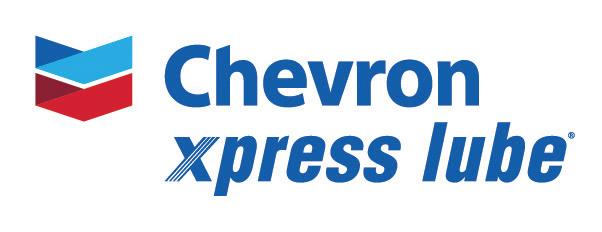
SPECS
Program option: Franchise
Territory: United States Approved: CA, IL, IN, MI, MN, ND, NY, VA, WI.
International Franchises: No
Cash Investment: $60,000
Total Investment: Single- $131,750 to $212,900 Multi- $174,250 to $321,900
Minimum Net Worth: $250,000
Franchise Fee: $54,900
Royalty: 6.5%
Ad: 2.5% Local Spend
Item 19: Yes
Visa Candidates: Yes
Home-Based: No
Master Franchise Opportunities: No
Veteran Discount: Yes
SUPPORT OFFERED
o Advertising: The Lube Shop manual serves as a resource for information on special promotions, direct mail options, collateral materials and media advertising. In-house social media management and customer reputation management solutions available.
o Signage: Comprehensive image program to support the sale of high-quality lubricant products. Independent operators have access to the OILU.ORG image database that is implemented at all the branded Costa Oil locations across the U.S. Custom sign package, featuring lighted street signs, exterior building signs and framed interior point-of-sale signs, available.
o Building Construction: Complete prototype plans available through participating architects. One- and two-bay plan includes a set of reproducible plans with supporting AutoCAD drawings.
o Site selection: We can put you in contact with our program partners who can provide detailed demographic, market profile and automotive expenditure reports.
o Training: In-HQ training for classroom training, plus training in facility. Proprietary website oilu.org offers online training, covering: hiring and training, customer service, effective service procedures and tips for add-on selling. Custom workshops and on-site consultations are also available.
o Equipment: A complete equipment list that includes everything for the operation of a quick lube is available upon request. Preferred pricing with pre-negotiated pre-vetted vendors.
o Financial assistance: We recommend working with your local lending institution.

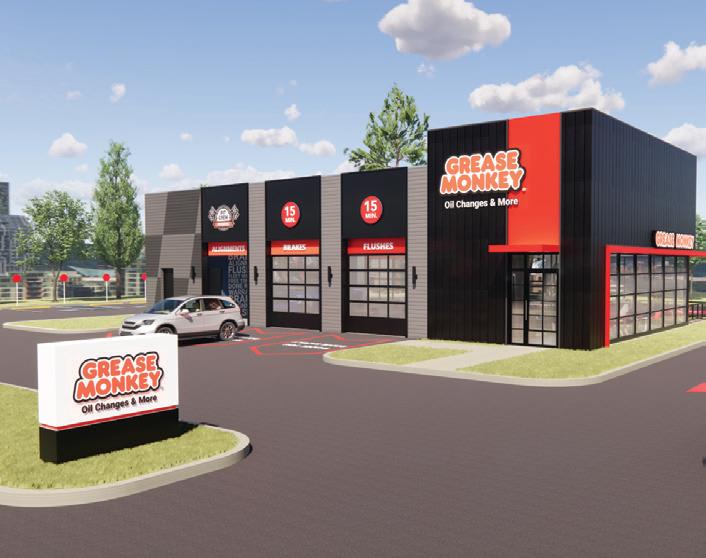


Franchise Development | 800.364.0352 greasemonkeyfranchise.com
SPECS
Program option: Franchise
Territory: National
Franchise Fee: $39,900, 15-year agreement; $29,900 for veterans
Royalty percentage required: 6%
Average start-up cost: $251,816 - $821,052
Individual qualifications: Minimum of $400,000 in liquid assets; $600,000 minimum net worth; credit score of 680 or higher
o Advertising: 4.5% includes 0.5% that is paid to the National Materials Fund for use in promoting and building the Grease Monkey brand; 4% is the minimum required spend for local advertising to support your growth in your market.
o Site Selection: Grease Monkey utilizes its network and market knowledge to identify potential sites that align with your business goals. This includes assessing traffic patterns, demographics, and competitive landscape.
o Building Design and Construction: Flexible construction and design plans allow for layout modifications and designs based on specific site conditions, zoning requirements, and local market demands.
o Financing: Grease Monkey does not provide financing; however, we have preferred relationships with several banks that offer both SBA and conventional financing available for franchisees with good credit.
o Marketing: Dedicated marketing team that manages sophisticated campaigns to drive business to your center.
o Training: Comprehensive training program which includes on-site classroom training at the corporate office for new franchisees; online training platform, available 24/7; ongoing training such as Advanced Managers Training School, webinars, conventions, etc.
o Ongoing Operations Support: Grease Monkey franchisees enjoy the support of dedicated franchise support directors who work with you when you have questions and who are available 24/7.

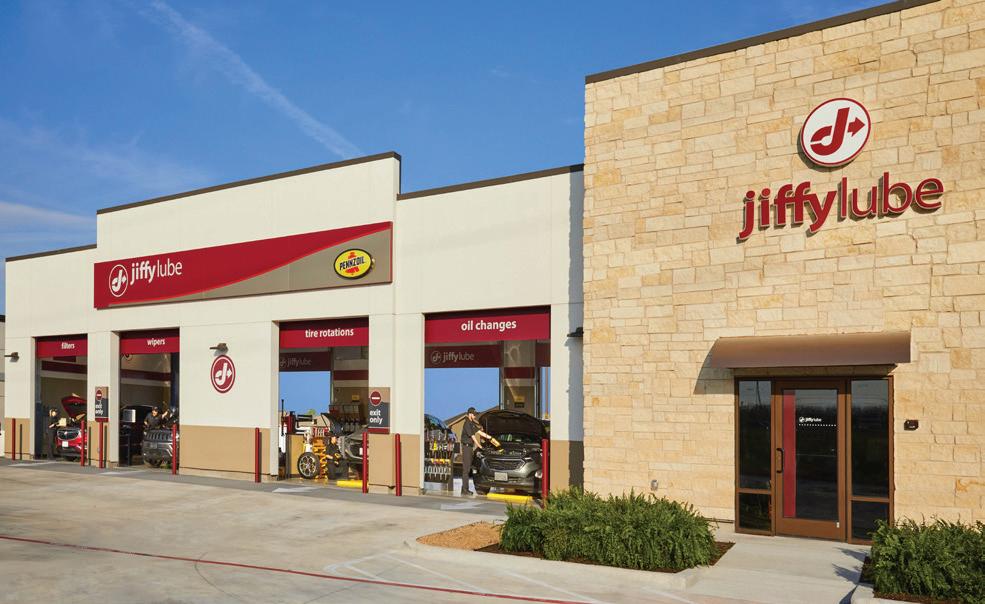
Melissa Cantwell | 800.327.9532 jiff y-lube-development@shell.com | Franchise.jiff ylube.com
SPECS
Program option: Franchise
Territory: U.S.
Franchise Fee: $35,000 for new development, or $17,500 for conversions
Royalty percentage required: 4% of sales (reduced to 3% with prompt pay discount)
Average start-up cost: Ranges from $207,000 - $500,000 (excluding real estate)
Individual qualifications: $250,000 liquid and $500,000 net worth
SUPPORT OFFERED
o Advertising: To connect with consumers and maintain a strong brand presence from coast to coast, Jiff y Lube activates a robust multi-million dollar national advertising campaign. Additionally, franchisees receive strategic counsel from dedicated area marketing managers to help maximize local store marketing.
o Site selection: Jiff y Lube business development managers have access to numerous resources to assist with the site selection process. Jiff y Lube works with real estate development companies to provide turnkey solutions for its Build To Suit Program.
o Building design and construction: The Jiffy Lube construction team is available to assist with recommendations and to provide building designs, equipment options, and consulting for new store development.
o Training: Jiff y Lube offers an award-winning training program, Jiff y Lube University. Jiff y Lube University is accredited by the ASE Training Managers Council (ATMC) and the American Council on Education (ACE).
o Other: Jiff y Lube provides field operations, marketing, and business development support as well as a proprietary point-of-sale system. The strength of the Jiff y Lube is complemented by premium Pennzoil products and Shell.

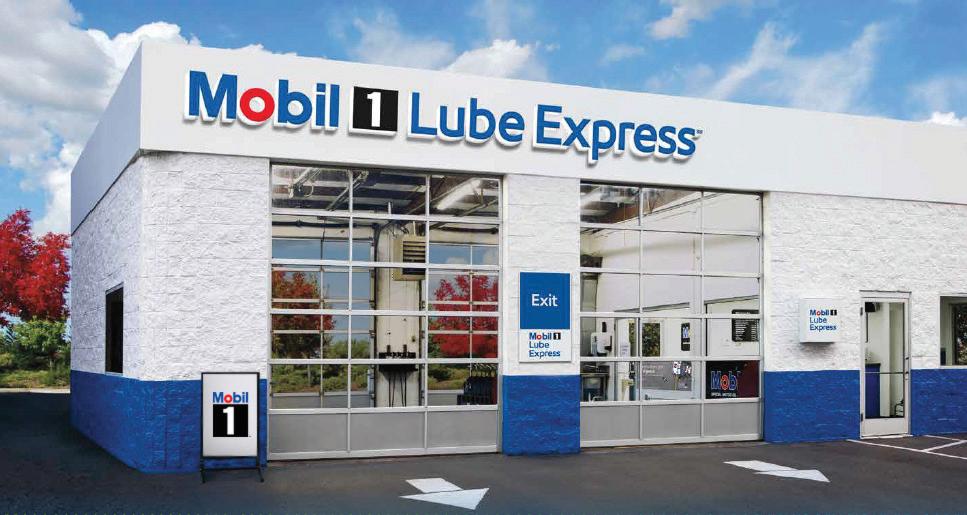

Program term: 5 years
Territory: U.S. and Canada
Franchise Fee: None
Royalty percentage required: None
Individual qualifications: The Flagship Branded program is for installers who want to go to market under the leading Mobil 1 brand name without franchising constraints. Required reviews include: location, operator business management background, business financials, and credit; sites must meet annual volume minimums.
o Signage: Program provides your location an individualized rendering with either “Mobil 1 Lube Express” or “Mobil 1 Car Care” branding, as well as additional branding support for the store interior.
o Promotion: National promotion focused on engaging consumers to trial more profitable products while supporting customer retention.
o Business support: We offer a range of business accelerators, marketing support, and tools to extract the most value out of our industry-leading brand.
o Training: Online training focused on vehicle education, customer service, market insights, education of Mobilbranded products and sales approach.
o Equipment: Access to equipment providers through ExxonMobil’s preferred partner relationships.
o Customer warranty: All Mobil branded products have a limited warranty.

Program option: Franchise
Territory: National
Franchise Fee: $39,900, 15-year agreement; $29,900 for veterans
Royalty percentage required: 6%
Average start-up cost: $251,816 - $821,052
Individual qualifications: Minimum of $400,000 in liquid assets; $600,000 minimum net worth; credit score of 680 or higher
o Advertising: 4.5% includes 0.5% that is paid to the National Materials Fund for use in promoting and building the SpeeDee brand; 4% is the minimum required spend for local advertising to support your growth in your market.
o Site Selection: SpeeDee uses its network and market knowledge to identify potential sites that align with your business goals. This includes assessing traffic patterns, demographics, and competitive landscape.
o Building Design and Construction: Flexible construction and design plans allow for layout modifications and designs based on specific site conditions, zoning requirements, and local market demands.
o Financing: SpeeDee does not provide financing; however, we have preferred relationships with several banks that offer both SBA and conventional financing available for franchisees with good credit.
o Marketing: Dedicated marketing team that manages sophisticated campaigns to drive business to your center.
o Training: Comprehensive training program which includes on-site classroom training at the corporate office for new franchisees; online training platform, available 24/7; ongoing training such as Advanced Managers Training School, webinars, conventions, etc.
o Ongoing Operations Support: SpeeDee franchisees enjoy the support of dedicated franchise support directors who work with you when you have questions and who are available 24/7.


SPECS
Program option: Franchise
Territory: North America (U.S. and Canada)
Total Investment: $222,794-$1,616,685
Franchise Fee: $35,000
Royalty: 7%
Ad: 5%
Item 19: Yes
Minimum Net Worth: $500,000
SUPPORT OFFERED
o Advertising: Franchisees work directly with a Take 5 marketing manager to craft local advertising campaigns and adapt to each franchisee’s specific market. The majority of Take 5’s 5% advertising fee goes to local marketing.
o Construction: Take 5 has an in-house construction team to help consult with franchisees on due diligence, design, permitting, and construction.
o Site Selection: Take 5 provides an in-depth market plan by identifying specific trade areas to focus on for new stores. Franchisees work closely with a real estate manager on site selection and throughout the permitting and construction process.
o Training: Take 5 has a multi-week training program in the main training store in Charlotte, NC, for all store management and above-shop management.
o Equipment: Take 5 provides all equipment and opening inventory in a single truck delivery. All inventory is sourced through Take 5.


https://partner.valvolineglobal.com/en/quick-lube/
SPECS
Program Option: Proudly PouringTM
Territory: North America (U.S. and Canada)
Franchise Fee: None
Royalty percentage required: None
Average start-up cost: Proudly Pouring Program is an independent quick lube partnership program
Individual qualifications: Owner/Operator
SUPPORT OFFERED
o Special Programs and Promotions: Valvoline fully-funded programs and promotions to help increase ticket value and drive customer growth.
o Signage: Access to Proudly Pouring trademarked co-branded signage, promotion and marketing materials.
o Training: Our ASE-certified, award-winning training includes online, classroom, virtual, and in-store opportunities.
o Financial Assistance: Available for qualified Quick Lubes
o Product Portfolio: Access to Valvoline’s premium product portfolio including motor oil, chemicals, coolant, wipers, and filters.
o Marketing Support: Access to exclusive industry research, digital assets and preferred rates with industry marketing vendors.
o Equipment: Access to preferred rates with industry equipment providers
o Customer Warranty: Valvoline backs the protection with a Limited Lifetime Guarantee.
o Other:
o Digital Account Service Hub (DASH): Tracks and simplifies ordering and provides product information, solutions and training.
o Support: Valvoline Account Management and Product and Technical Hotline support.



SPECS
Program option: Sales Agreement
Territory: U.S. and Canada
Average start-up cost: $0 (Growth conversion program for independent operators)
Individual Qualifications: Express Care is the platform for business owners who want to retain their independence, benefit from guaranteed growth, and capitalize on proven expertise and tools from a trusted partner.
Marketing: The Valvoline Express Care platform incorporates proven marketing strategies that are included but not limited to customer retention, digital marketing, reputation management, lead nurturing campaigns, and new customer acquisition tools.
Signage: With Valvoline’s vibrant brand image, Express Care operators are set apart from the competition. Each location receives permanent and professional exterior building signage. Operators work with Valvoline through sign rendering, permitting, production, and installation.
Business Support: Each Valvoline Express Care location receives operational and business growth support through their Express Care Business Advisor.
SPECS
Program option: Franchise
Territory: Specific territories available for development nationally
Franchise Fee: $30,000
Royalty percentage required: 4-6% on a graduated scale. For new stores, first-year royalties are 2% and second-year royalties are 3%.
Average start-up cost: $192,375 to $3,483,550, dependent on whether real estate, building, and equipment are purchased or leased.
Individual qualifications: Minimum net worth $1,000,000; minimum liquid assets of $600,000. The ideal franchise candidate is a growthminded, multi-unit operator looking to diversify their portfolio.
Marketing: Franchisees have access to the same proven marketing programs used in company-owned locations, including both traditional and digital marketing strategies that drive retention of existing customers and acquisition of new customers, including fleet business.
Location Development: We provide assistance with real estate analytics, site selection, forecasting, planning, permitting, construction, and acquisition support.
Operations: Franchisees have access to a field support team that has extensive experience in quick lube operations and multi-unit management.
Training: Our training program equips new franchisees with 70 hours of classroom training at start-up, plus up to 312 hours of on-the-job training. Ongoing support includes both online and in-person training.
Technology: The backbone of the VIOC experience is our proprietary point of sale system that ensures our team delivers a consistent customer experience across all locations nationwide. Equipped with added information and tools for managing inventory, pricing, labor, fleets, financial reporting and more.

Customer Experience: Our business model is built for convenience, with no appointment necessary. Stay-in-yourcar oil changes provide a quick, easy, trusted experience, in about 15 minutes. Our SuperPro™ process ensures a standardized experience for every customer, every time.
Other: VIOC operates over 900 company-owned locations, giving franchisees access to our experience in site selection, construction, operations, training, marketing, customer service, fleet management, business analytics, technology, and more.
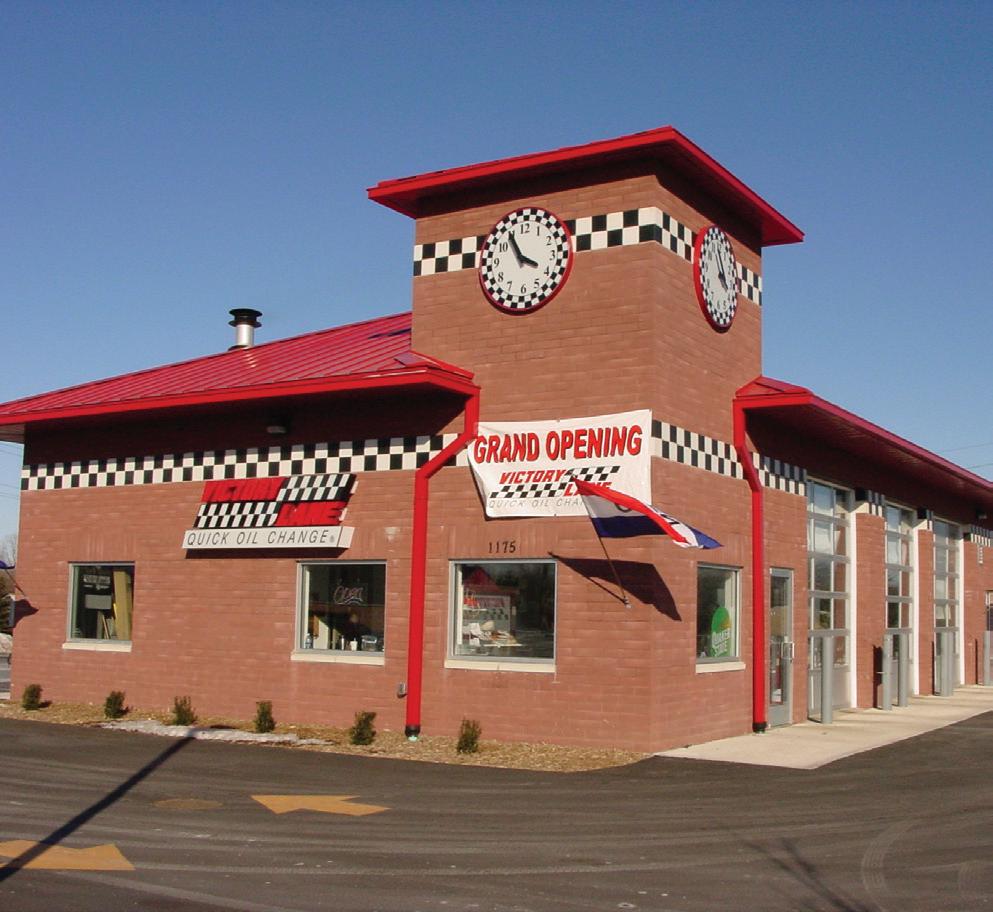
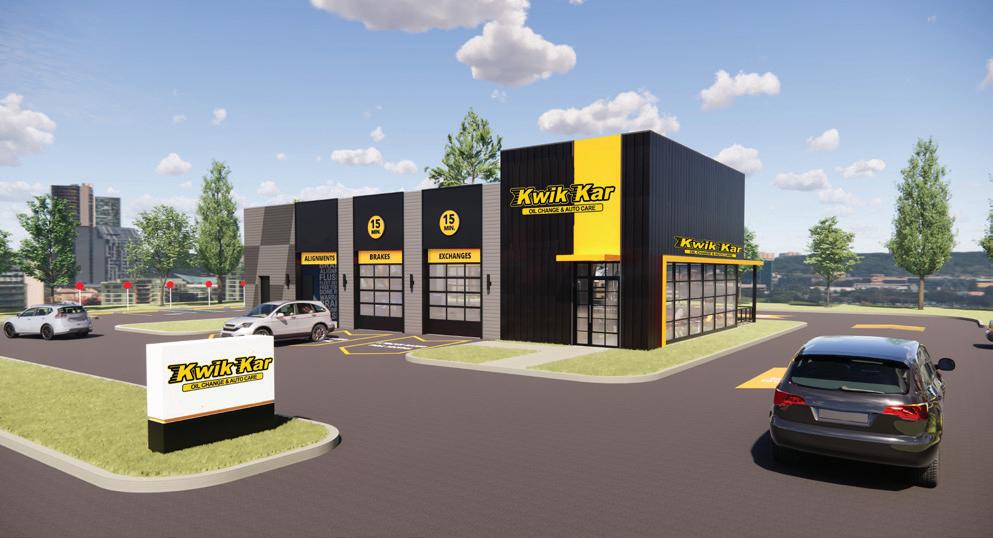
SPECS
Program option: Franchise
Jim Harrington | 734.667.4304 ext. 104 jharrington@victorylane.net | victorylane.net
SPECS
Territory: National
Jim Harrington | 734.667.4304 ext. 104 jharrington@victorylane.net | victorylane.net
Jim Harrington | 734.667.4304 ext. 104 jharrington@victorylane.net | victorylane.net
Franchise Fee: $39,900, 15-year agreement; $29,900 for veterans and first responders
Royalty percentage required: 6%
SPECS
SPECS
Program option: Franchise
Average start-up cost: $251,816 - $821,052
Program option: Franchise
Territory: National
Program option: Franchise
Individual qualifications: Minimum of $400,000 in liquid assets; $600,000 minimum net worth; credit score of 680 or higher
Franchise Fee: $49,500 for one unit
Territory: National
Territory: National
Franchise Fee: $49,500 for one unit
Franchise Fee: $49,500 for one unit
Royalty percentage required: 6%
Average start-up cost: $200,000–$250,000 depending on location
Royalty percentage required: 6%
Royalty percentage required: 6%
Individual qualifications: Net worth $250,000. Prefer business or management experience. Auto experience is not required.
Average start-up cost: $200,000–$250,000 depending on location
Average start-up cost: $200,000–$250,000 depending on location
Individual qualifications: Net worth $250,000. Prefer business or management experience. Auto experience is not required.
Individual qualifications: Net worth $250,000. Prefer business or management experience. Auto experience is not required.
o Advertising: 4.5% includes 0.5% that is paid to the National Materials Fund for use in promoting and building the Kwik Kar brand; 4% is the minimum required spend for local advertising to support your growth in your market.
o Site Selection: Kwik Kar utilizes its network and market knowledge to identify potential sites that align with your business goals. This includes assessing traffic patterns, demographics, and competitive landscape.
o Building Design and Construction: Flexible construction and design plans allow you to modify layouts and designs based on specific site conditions, zoning requirements, and local market demands.
o Financing: Kwik Kar does not provide financing; however, we have preferred relationships with several banks that offer both SBA and conventional financing available for franchisees with good credit.
o Marketing: Dedicated marketing team that manages sophisticated campaigns to drive business to your center.
o Training: Comprehensive training program which includes on-site classroom training at the corporate office for new franchisees; online training platform, available 24/7; ongoing training such as Advanced Managers Training School, webinars, conventions, etc.

o Ongoing Operations Support: Kwik Kar franchisees enjoy the support of dedicated franchise support directors who work with you when you have questions and who are available 24/7.

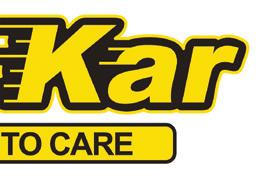






As the automotive world moves toward hybrid and electric vehicles, preventative auto maintenance shops should think about doing the same
BY PETER SUCIU
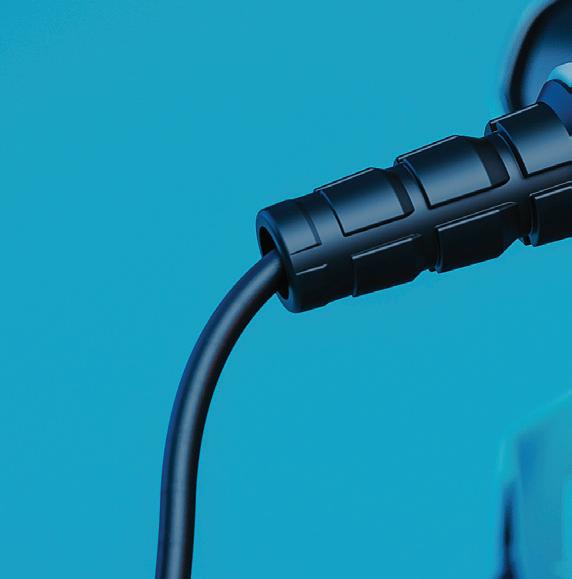

THIS COMING JULY WILL MARK the 60th anniversary of Bob Dylan going “electric” at the Newport Folk Festival. It is remembered as being a pivotal moment in rock music, but in reality, electric was the future, even for folk music.
It is hard not to see the automotive world moving in the same direction. It may not be next year, or even the next decade, but we can expect to see more hybrid and electric vehicles (EVs) on the road in the not-toodistant future. For preventative automotive maintenance shops, now is the time to think about going electric as well.

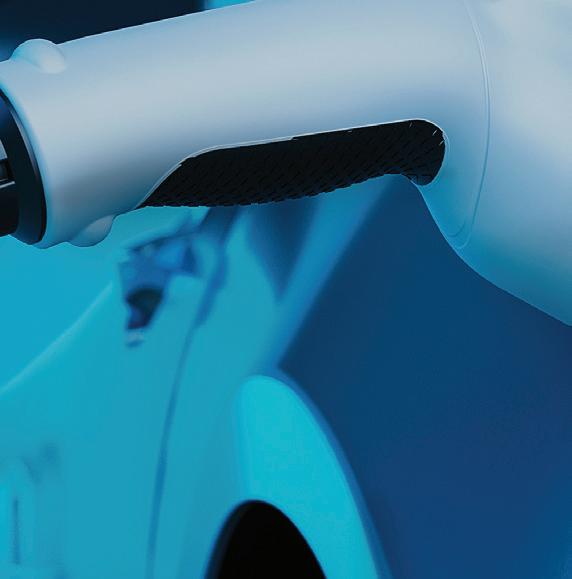


“Electric vehicles aren’t going to be the only automobiles on the road, but with all the incentives and the money that the federal government has spent, there is no way it is going to back down,” explains John Forro, leader instructor, content developer, and owner of Electron John, which provides EV maintenance training services.
According to 2024 National Renewable Energy Laboratory estimates, there will be 26.4 million to 33 million EVs on U.S. roads by the end of



the decade. That number is expected to only grow throughout the 2030s. It will also pick up speed sooner than expected, with recent data suggesting that by as early as the end of 2025, 20% of new car sales could be EVs. Yet, if those numbers are overly optimistic for the EV market, there are still plenty of opportunities for the shops that can service the vehicles.
“Even if there was never another EV sold, there are already so many on the roads that chances are someone in your customer database is going to require service,” Forro tells National Oil & Lube News.
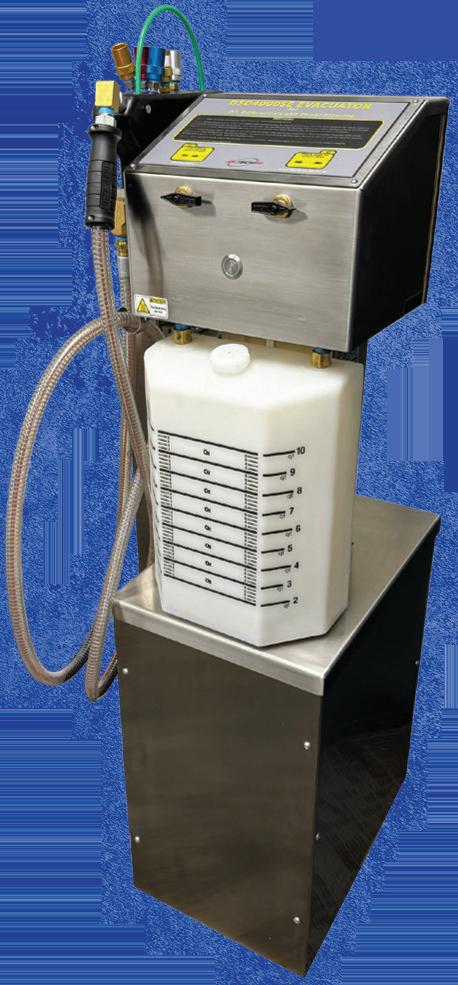

engine vehicles, there will likely be continuing education with EVs.
“The training is important so that you can be relevant in this space,” says Forro. “But in addition to having the equipment, I can’t stress enough the importance of the PPE devices, which ensure a layer of safety when working around high voltage. If you don’t have the right equipment and PPE, it handcuffs what you can do and what services you can offer.”
A shop that works on EVs will have different PPE devices than one that only services traditional automobiles. In addition to aprons, coveralls, hoods, knee pads, and gloves among other equipment, EVs will require a shop to add arc-rated garments that can withstand an arc flash from intense heat and flames, while shops



will need shock protection gear, face shields and even helmets.
PPE shouldn’t be the first consideration.
“Start with the training, which can be time-consuming, then go into the PPE, and then the equipment,” Forro recommends.
Shops will also need to set up a charging system, which Forro says is a “whole other can of worms,” yet it is one any shop servicing EVs will need.
Shops that are entering the EV market can still start out with basics, including servicing the tires and even fluids.
“EVs use specialty tires, which can wear out faster on EVs than on other vehicles,” says Forro. “There are still plenty of options for fluids, which should be familiar to those in the quick lube space. There are all sorts of specialty fluids for EVs, but it is important to note they can’t have any kind of conductivity. These include the braking fluids and coolants recommended by the manufacturers.”
An EV high voltage battery is certainly the largest service potential for a preventative maintenance shop, as these can go out of balance, so under standing how to maintain these could be something shops explore as they get more comfortable.
“A shop that can balance the batteries will set themselves apart from the shop down the road, as balancing will help the car regain lost mileage,” Forro explains, while he adds that there are many regulations that peo ple may not be aware of.
That can include testing a battery enclosure to ensure that no debris can enter, to reduce the risk of fire. Anytime a vehicle is in an accident— however minor—the enclosure needs to be tested. Likewise, there are regulations on how batteries are being

transported, including if they’re in the car. A battery in a car that is being towed must be 40% charged or less, while any battery transported by air can’t be more than 20% charged.
The next decade could see the most opportunities for a shop to add other
Preventative automotive shops need the right tools and extra protective equipment when working on hybrid and electric vehicles.
EV services, says Forro.
“We can expect the number of EVs to steadily increase, and there is going to be work out there for everyone,” he tells NOLN. “Even if there is a shop down the road or next door or offering EV services, there is going to be business for everybody.”







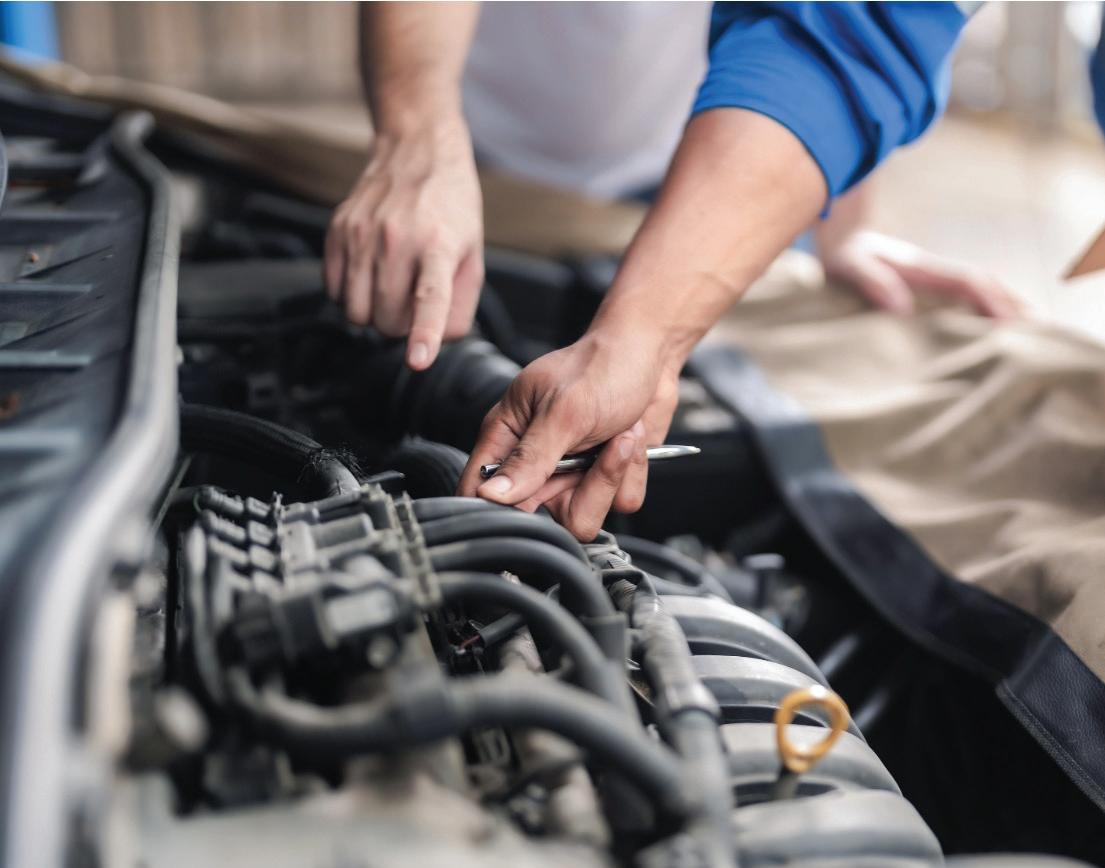

Shop owners see common queries as an opportunity to further educate themselves and their customers
BY EMILY KLINE
CUSTOMER QUESTIONS IN THE quick lube industry are often repetitive and frequent. So much so that it is easy for quick lube employees to formulate blanket responses that are short and sweet and get straight to the problem. Although giving customers a standard response is easier and faster, quick lube employees should recognize customer questions as an opportunity to further educate themselves and their customers.
For quick lube operators like Melissa Vail, owner of VP Racing Fast Lube in Jonesboro, Louisiana, and John Bri ain, owner of Bri ain’s Express Oil & Lube in Elgin, Illinois,
these interactions have become a cornerstone of their businesses. By using their expertise and turning customer questions into educational opportunities, they not only build trust but also empower customers and staff with valuable quick lube knowledge.
As co-owner, Melissa Vail knows the importance of utilizing daily interactions as teaching moments for her employees.
Having worked in the insurance industry for 17 years, she is the first to admit that she had to learn a lot of what she knows about automotive maintenance on the job. After
acquiring the shop with her husband in 2019, Vail was thrown into the deep end.
Starting out, Vail and her husband didn’t know what the income from the shop would look like, as a result, Vail’s spouse kept his job at an offshore oil rig while they became acquainted with the ins and outs of franchise owning. But because of this, Vail was often left with the responsibility of managing the shop when her husband was away.
“I had to learn everything from the ground up,” Vail says. “It all got laid in my lap, from hiring people, and learning where to find what we wanted at our shop. I had to teach myself how to do everything. It’s crazy because running a shop was just not something that I ever expected I would be doing.”
As she took on her management role, Vail found out very quickly that customer questions were often very common in nature.
“They’ll usually say something along the lines of, ‘my car’s making a noise, can you listen for that and see what’s going on?’ From there, we’ll usually try to nail down what’s going on with their vehicle. They also frequently say, ‘My car is leaking oil, where is it coming from?’ Most of the time people come in and don’t know what’s going on with their car.”
When the customers ask these types of questions, Vail has taught her employees what the most common symptoms to the problems look like. By treating it as an investigation, they can see the clues that lead to the bigger issue.
“We’ll show them, it looks like it’s coming from the oil pan, or the remain seals leaking, or even the transmission,” Vail says. “So, if it’s anything like that, we all talk to each other, so we know what to look for. We make sure that our employees are aware of things like that
whenever things are coming in, so just making sure you’re giving, your employees things to look out for.”
In addition to teaching employees about the symptoms of possible problems, it’s also important to use customer questions as a teaching moment for the customer. This is what John Brittain does at his quick lube shop.
Brittain’s dad started the business in 1986, and he started working there in high school in 2001. When his dad retired in 2018, Brittain took over as owner of the business.
With over 26 years of experience at his shop, Brittain has heard all sorts of questions. The most frequent queries that his shop gets have a deeper answer than customers suspect.
“One of the more popular questions we get would be people asking about oil change intervals and how long they can go,” Brittain says.
My answer to them is I usually try to reiterate that, yes, you can go longer on an oil change with synthetic oil, but it doesn’t mean that instead of going 3000 miles, you’re going 6-7-8-9-10,000 miles more on an oil change,” Brittain says.
It is important that customers know that just because the quality of the oil might be better doesn’t mean that they can stop personal upkeep of their car, he adds.
“They can’t just ignore your car for 10,000 miles until your car says, change the oil,” Brittain says. “That’s where I try to reiterate to them and my employees that cars burn oil, and that’s a big thing. It’s important that

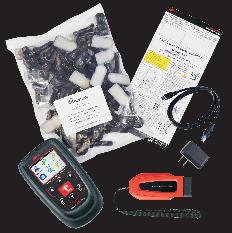

they ensure that their fluid levels are always being checked.
“Just because they’re going longer doesn’t mean they can neglect their car or just not pay attention to it, because a lot of cars, you know, go with extended drain intervals like that. Oil will get low at some point, and they’ll need to add to it. If they don’t, then they’re really doing themselves no favors, going longer.”
Regardless of the questions that Brittain gets at his shop, he always ensures that his customers leave the shop knowing more than when they came in. Any question that comes into a shop, no matter how difficult, should always be looked at as an opportune moment to teach customers and employees new information that they might not otherwise come across.
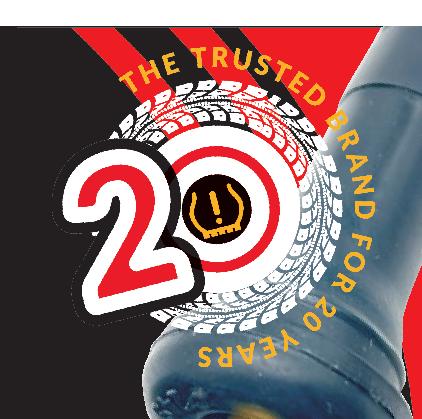
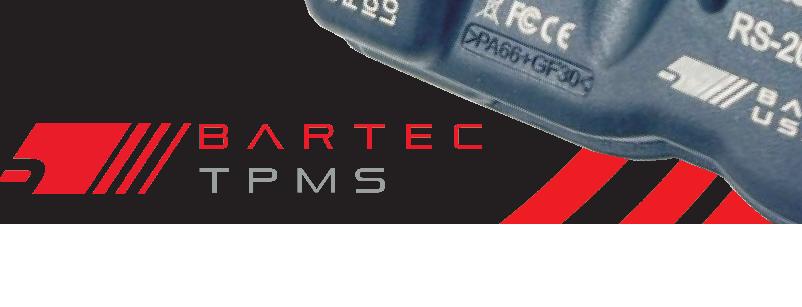


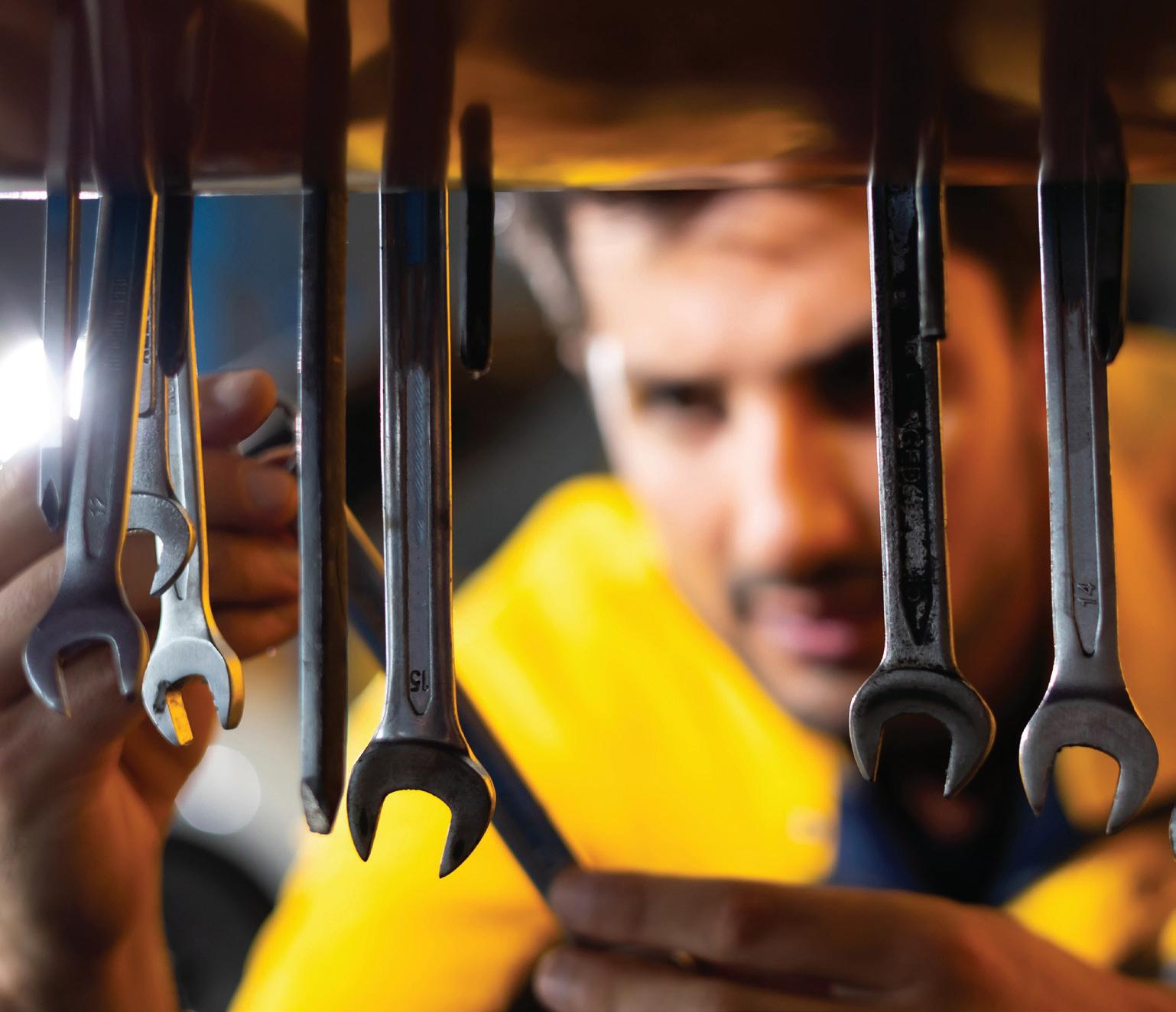
Core equipment essentials help improve efficiencies in the shop and can increase car count
BY ENID BURNS
TOOLS ARE ESSENTIAL FOR ANY auto mechanic shop. A quick lube shop may be more concentrated in its scope, requiring a core set of tools that help mechanics get each customer’s vehicle through the bay. That doesn’t mean shops should just stick with the tools they have and not look for upgrades.
While some tools are basic requirements, mechanics will learn
to grow their toolbox with essentials that help get the job done in a time that lives up to the “quick” in quick lube. It’s appropriate, and even necessary, to always be on the lookout for new tools that will make the job easier. While a shop owner or manager might go to every resource for education, a few good places to start include networking events, conferences, and sales reps. New employees
can also be a good resource, as they may have used different tools at a previous job or have experience with new processes from training they have undergone.
Starting and maintaining a shop is a challenge. A core set of tools goes a long way in helping mechanics serve customers in the appropriate time. Some tasks can be completed with only the basics, however, the right set of tools will streamline the process and get cars through the shop at a faster rate.
“The first primary tool set a quick lube needs is a full assortment of filter wrenches,” says Jeff Smith, vice president of key accounts at Service Champ.
There are more tools for the essential tool kit, which shops should consider their core equipment.
Smith continues with a list of essential tools and equipment every shop should have: “Most of the filters can be removed with an end cap wrench, but they will also need an assortment of band filter wrenches. The shop also needs at least a 3/8-inch socket set, along with a full assortment of both standard and metric wrenches. We also recommend shops prioritize screwdrivers and a hex bit set.”
In a pinch, service can be pulled off with minimal tools. The situation is not ideal. It can add time and extra work for mechanics, slowing the speed of a customer’s visit. It is wise to invest in essential equipment to speed service and make things easier for work to get done.
“We do run across shops that are missing the proper tools,” Smith tells NOLN. “Without proper tools, the job takes longer than it should.”
Each vehicle that goes through the shop will require more labor and more time for service. This can end up costing the shop in the long run, and furthers the case for building that
essential set of equipment to support mechanics in their job and better spend resources like time and energy.
Look broadly for resources to learn about new tools, equipment, and practices, Smith explains.
“When managing a quick lube, you are getting information from every source you can,” he says. “Networking events and conferences seem to be where most shop owners gain the knowledge on what new items are available.”
Suppliers can help with sourcing and even education on how to use new equipment. If an owner returns from a conference and needs help finding that tool a colleague told him about, a supplier might be the best resource to match the tool.
A shop can also inquire with a supplier when a process is taking more time than expected. There might be a better solution out there but it’s still necessary to ask about it.
Further, ask a new employee what tools they have used in the past that might not be in the shop. The new tool or process could save time and money while better serving customers.
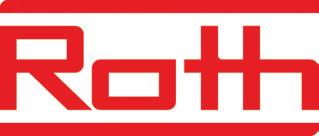
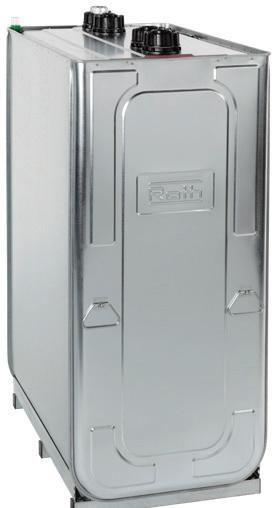
• Designed
Adoption of new tools will typically add efficiency without much time spent learning a new tool or system. If a shop owner or manager isn’t sure why certain equipment will be essential, it can help to ask for more information on how it can be used to make work more efficient.
“In most cases, a new tool or process is easily received because it makes the job easier or faster,” states Smith. “But we always try to focus on how it benefits the quick lube team when we are walking them through how to use the tool.”
Building up the equipment essentials in the shop’s tool supply is necessary for staying competitive and up to speed with technology. The process never ends. Once a new tool is added to the essential kit and improves efficiency, it might be time to look for another tool to add to the process.
“Shops should always be looking for a new tool or piece of equipment that makes their job more efficient,” Smith says. “It’s this focus on continuous improvement and thinking about what’s next that will keep shops ahead of the curve.”
• Outer tank holds 110 percent of inner tank
• Up to 50 percent lighter than conventional steel tanks
• Easy to install and compact design
• Exceeds industry standards/UL2258 Certified
• Compliant with NFPA 30/30A
• Low-cost
• 30-Year warranty
• Leak-proof and will not corrode
Technology is driving a need for new tool adoption. Advancing technology in vehicles, including autonomous driving features and EV adoption, requires new and advanced tools.
“As vehicles are modernized and become more complex, it’s critical for those in the industry to stay up to date on the tools required to perform the quick lube service. A quick lube’s primary supplier is a great resource for information and new tools,” Smith says.
“One of the most recent trends we are seeing is the migration from air tools to cordless electric tools. We have recognized those trends and, as a result, have brought in a new full line of industry-leading cordless tools to offer our Service Champ customers.”
Adoption of new tools takes time and adds expense, however the effort pays off. Equipment essentials make it easier for shop employees to do their job, speed up time spent with each vehicle, and can sometimes add safety. In addition, advanced tools that become essential can increase car count and customer retention.
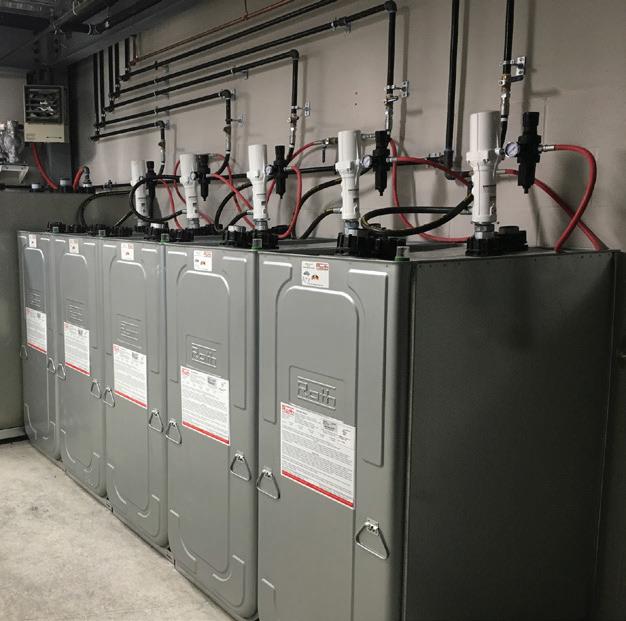
Being proactive through strategic planning and risk management can set operators on a path to success



Adam Tatum is director of operations for the Virginia Group, a Jiffy Lube franchisee with 11 locations.
He has over a decade of experience in the industry with a proven track record of building customer counts and sales, as well as using innovative ways to bring a new look to the automotive field for both the customer and the employee. Performance comes from growing your business through people.
hobby, I would bet you have heard some noise about a book called “7 Habits of Highly Effective People” by Stephen Covey. The book goes over the author’s ideas on how to spur and nurture personal change. The book also explores the concept of effectiveness in achieving results, the need for focus on character rather than personality, and ethics in selecting value systems. As named, this book is laid out through seven habits the author has identified as conducive to personal growth.
Here, I will begin to present the 7 Habits of an Effective Lube Manager using Covey’s system. These may not all be for you, but you might find bits and pieces that will improve what you do in your own shop.
The first section of Covey’s book is titled “Be Proactive.” Proactivity is about taking responsibility for one’s reaction to one’s own experiences and taking the initiative to respond positively and improve the situation. Many of us operate as reactive managers in this industry. We want to improve proactive management. Proactive management is a leadership style that emphasizes strategic planning and risk management rather than taking a reactive approach to situations and business goals. Proactive management can be applied to any industry through leadership that puts an emphasis on planning and forward thinking. Managers who use a proactive approach try to identify and solve problems before they escalate and sometimes before they even happen. They analyze risks and then take action to encourage business growth.
So, how can we be proactive? Let us talk about three things that we react on. The first is warranty issues.
Training would be the biggest preventive option that you can take. We can take advantage of a four-step training process to improve our team’s knowledge in each position. Take your
best technician in that position. We take a new hire or trainee into the lower bay with them. First, the lead tech does all the work with the trainee watching. The trainer tells them exactly what they are doing and why. Next, the trainer does the work, but the trainee tells him what he is supposed to do. This step may be repeated if needed. On the third car, the trainee is handed the tools and goes hands-on with the trainer assisting. When the fourth car comes in, the trainee is on their own with the trainer watching and only stepping in if there is an issue.
Once they can show that they can complete the procedures for a few cars, the trainer can sign off on the trainee. If you do this weekly with different employees and they can be cross trained easily.
Another way that you can avoid claims is with the tools that you have in hand. How many of you have had a Hyundai or Kia oil pan issue or plug back out? For these cars, I use an oil extractor, which can be found at your preferred vendor for machines or even on Amazon. Using this machine, we never touch the plug and we remove the oil from the dipstick. This can be used for multiple models. Our claims were dramatically reduced upon putting these in place.
When you have employees cross-trained, they can move into a needed position and keep your operations moving. The same goes for that problem with getting an unexpected rush of customers. With multiple people trained in multiple areas, you can put your aces in their places and get through the rush efficiently. Be proactive in all that you do. Look for the next talented employee and train them up. These are the best ways to stay ahead of issues and become more effective in proactive management and less reliant on reactive situations. This is the first step in the 7 Habits of an Effective Lube Manager.
